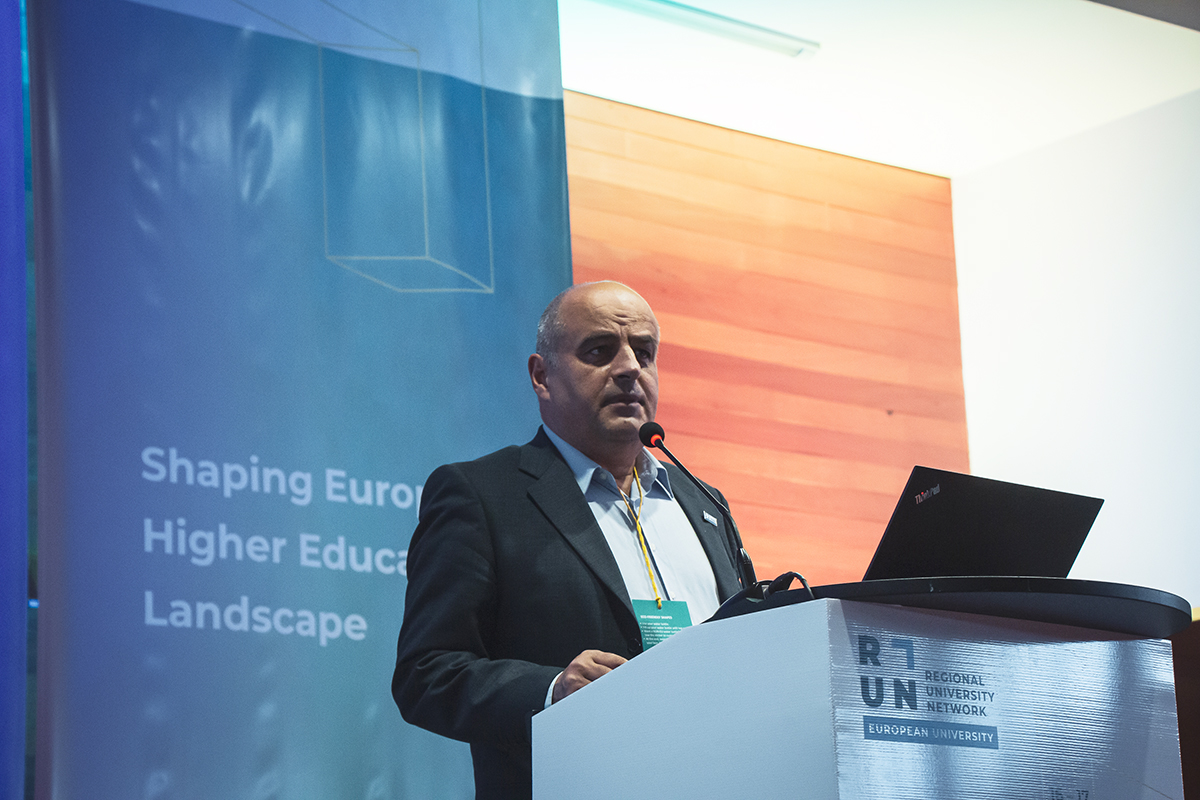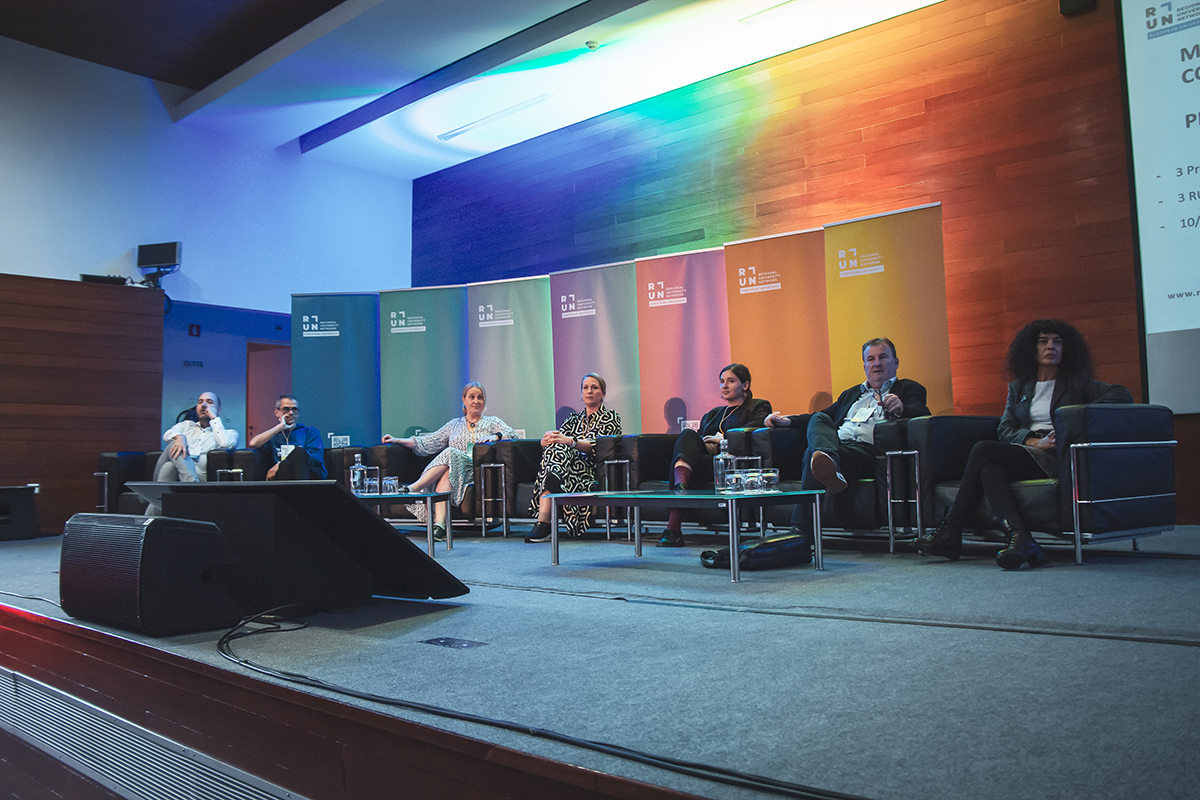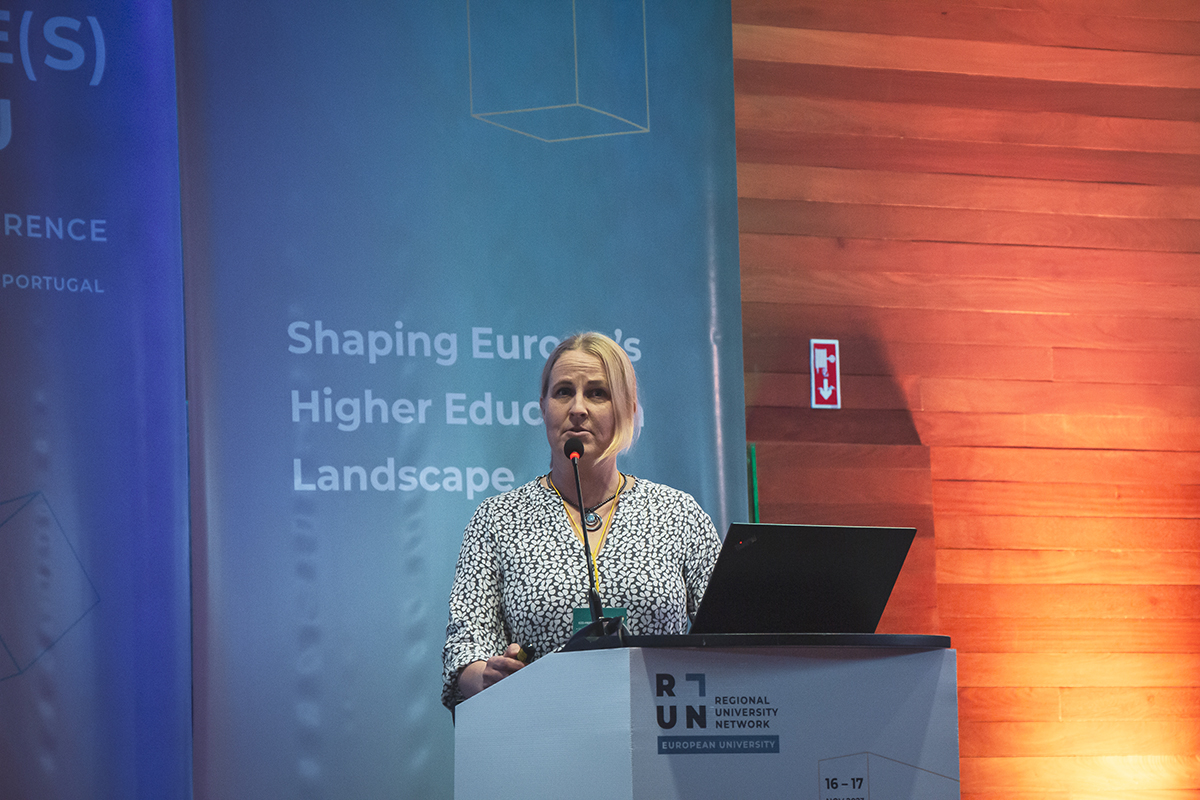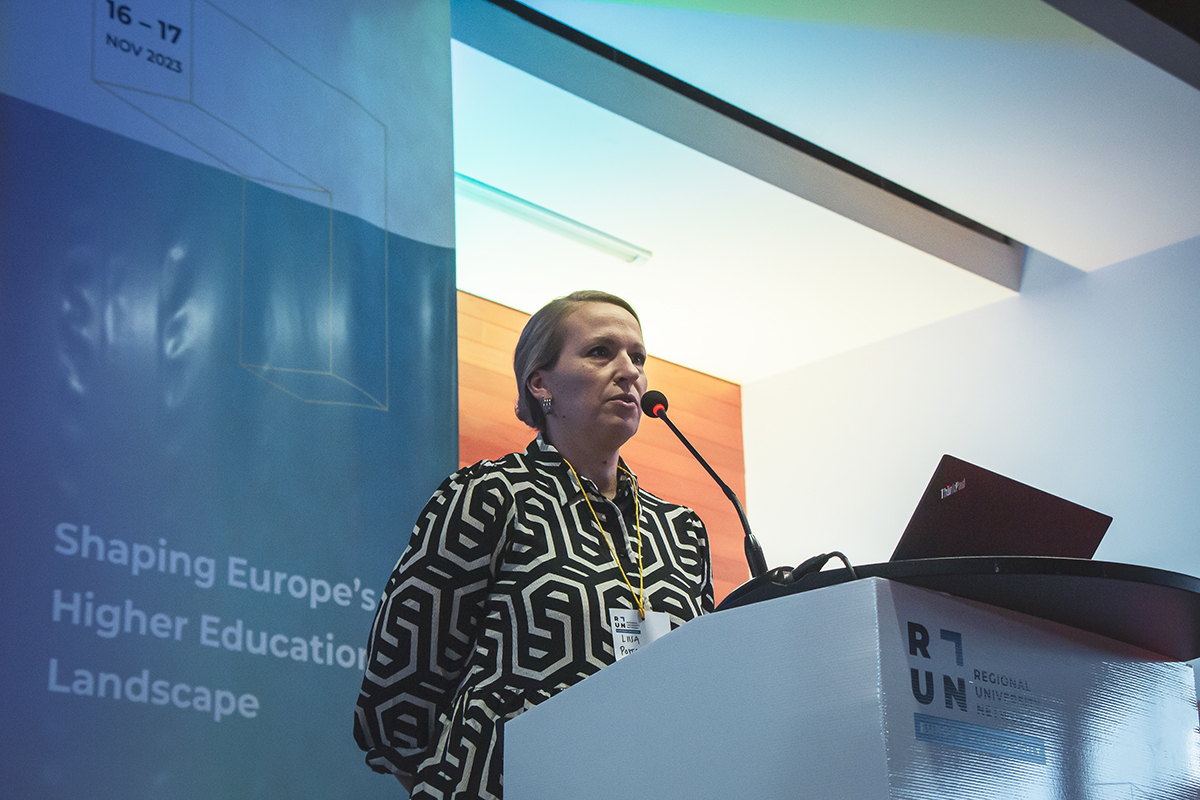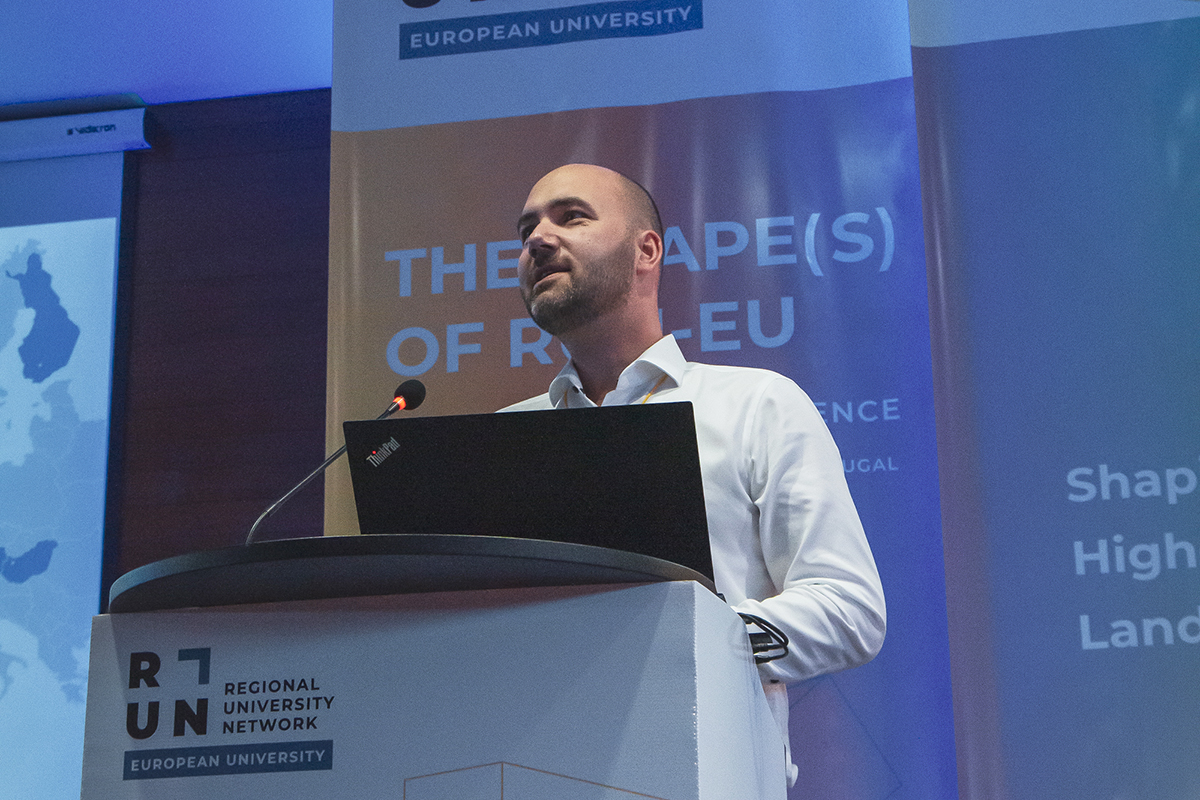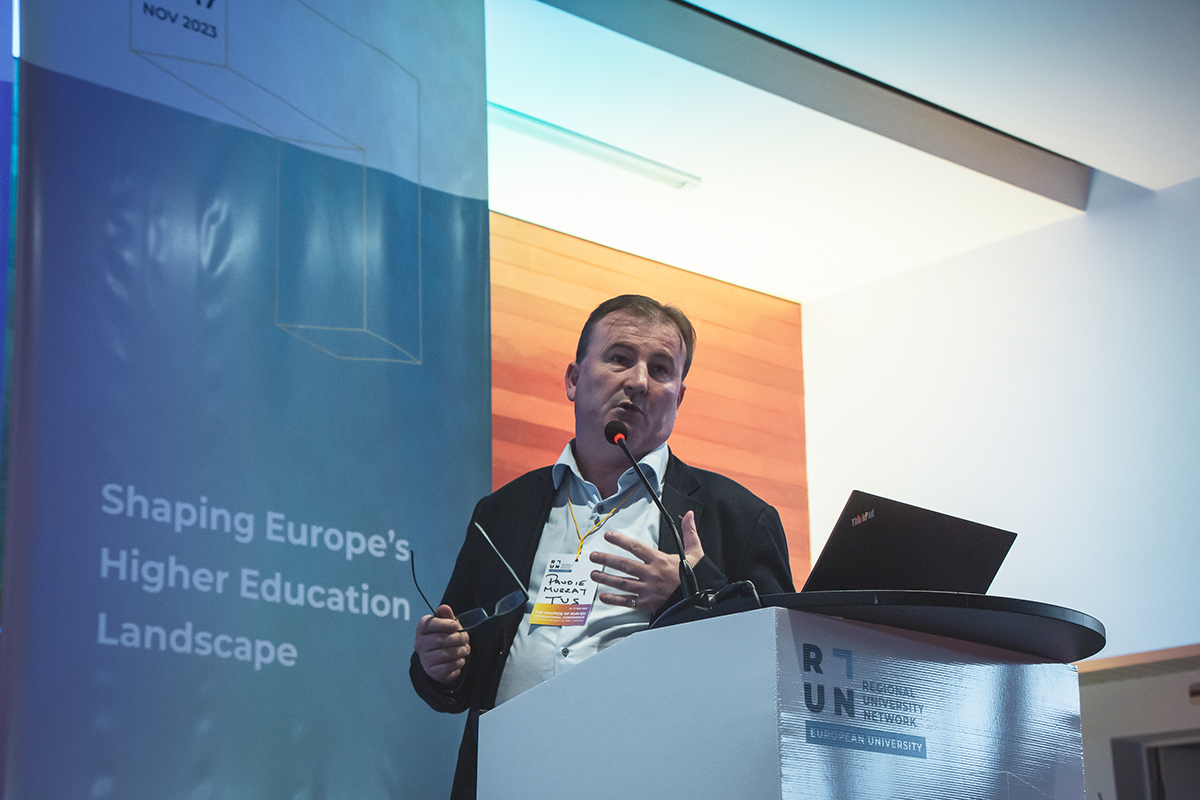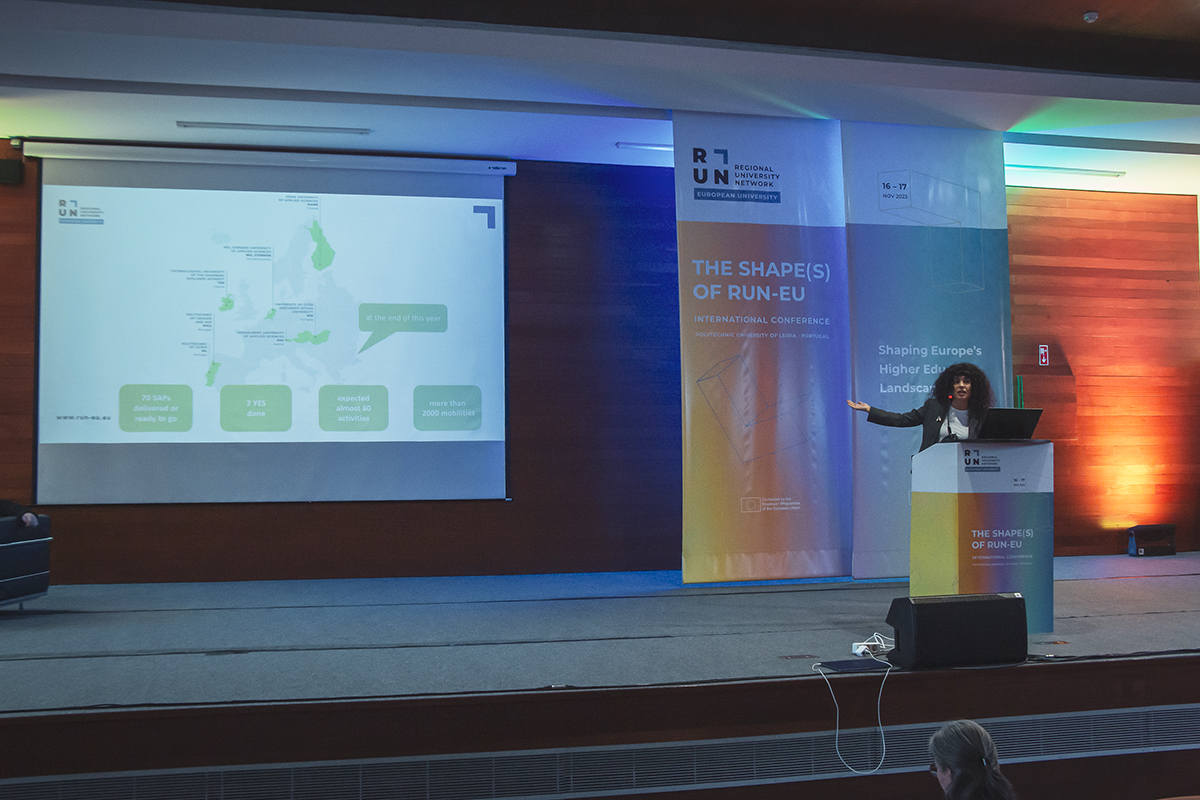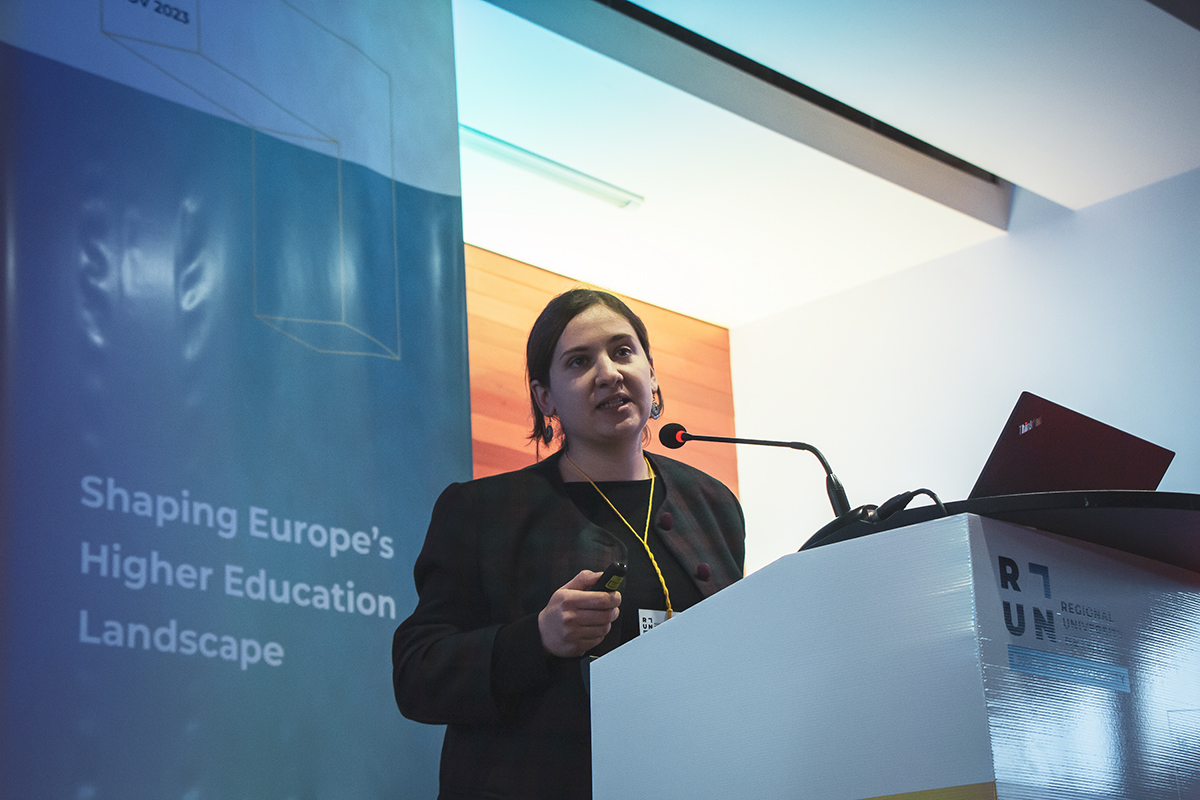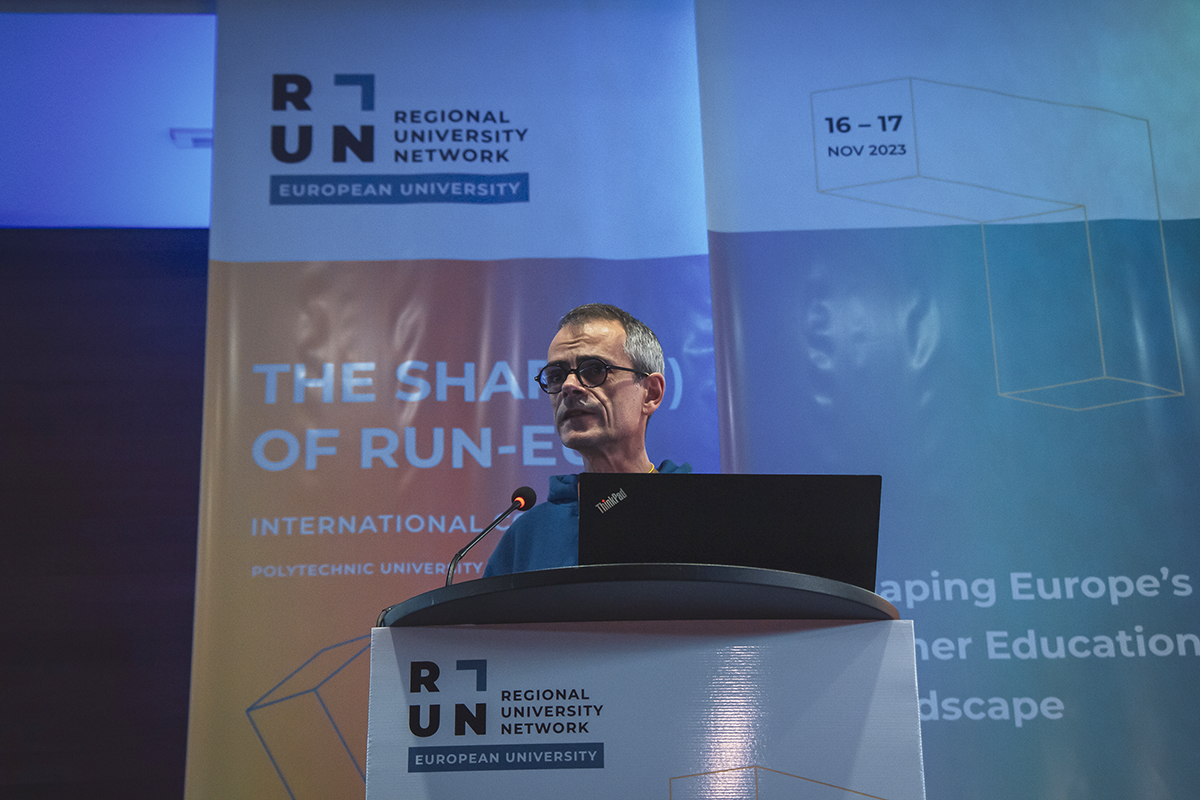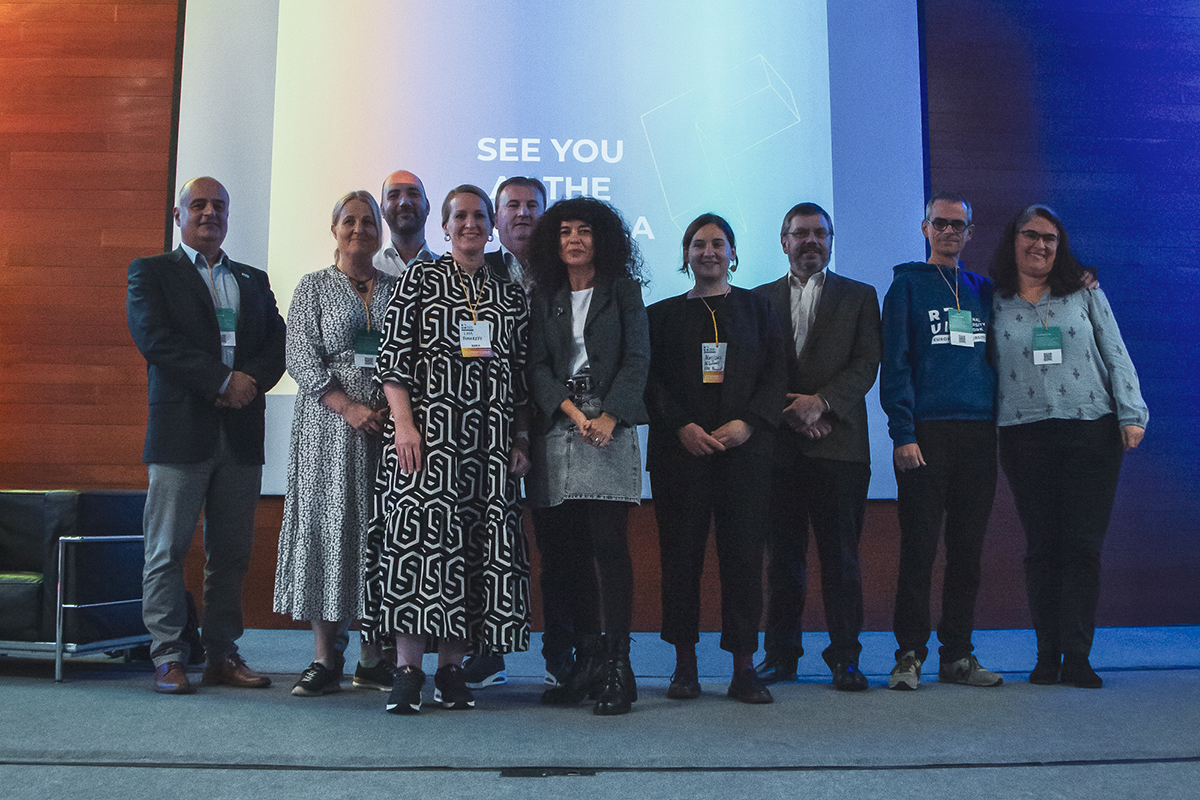NEWS
The Shape(s) of RUN-EU International Conference Was a Space to Meet, Reflect and Plan for the Future
22 November 2023
More than 260 students, academic, research and administrative staff, associated partners and external stakeholders embarked on a transformative journey by attending The Shape(s) of RUN-EU International Conference, at the Polytechnic University of Leiria (IPLeiria) on 16 and 17 November.
Held at the School of Technology and Management (ESTG), in Leiria, Portugal, under the theme ‘Shaping Europe’s Higher Education Landscape’, the event celebrated RUN-EU’s third anniversary and a significant milestone for the University Alliance.
This unique event marked the end of the first cycle of RUN-EU and brought together the seven higher education institutions involved, as well as the two new members for the next cycle: the University of Burgos and the Howest University of Applied Sciences.
A visionary cross-border collaboration that brought together academic, scientific, cultural, social and translational strengths to foster the diverse and innovative skills needed for Europe’s global competitiveness.
The conference was a dynamic arena to reflect on the creation and future of RUN-EU.
Engaging panel discussions explored the profound implications at the institutional level, with the participation of students, educators, researchers and associated partners.
Together with guest experts, we reflected on the achievements of the past three years and explored the design and implementation of new educational offerings and services, while envisioning exciting prospects for future growth with our valued stakeholders.
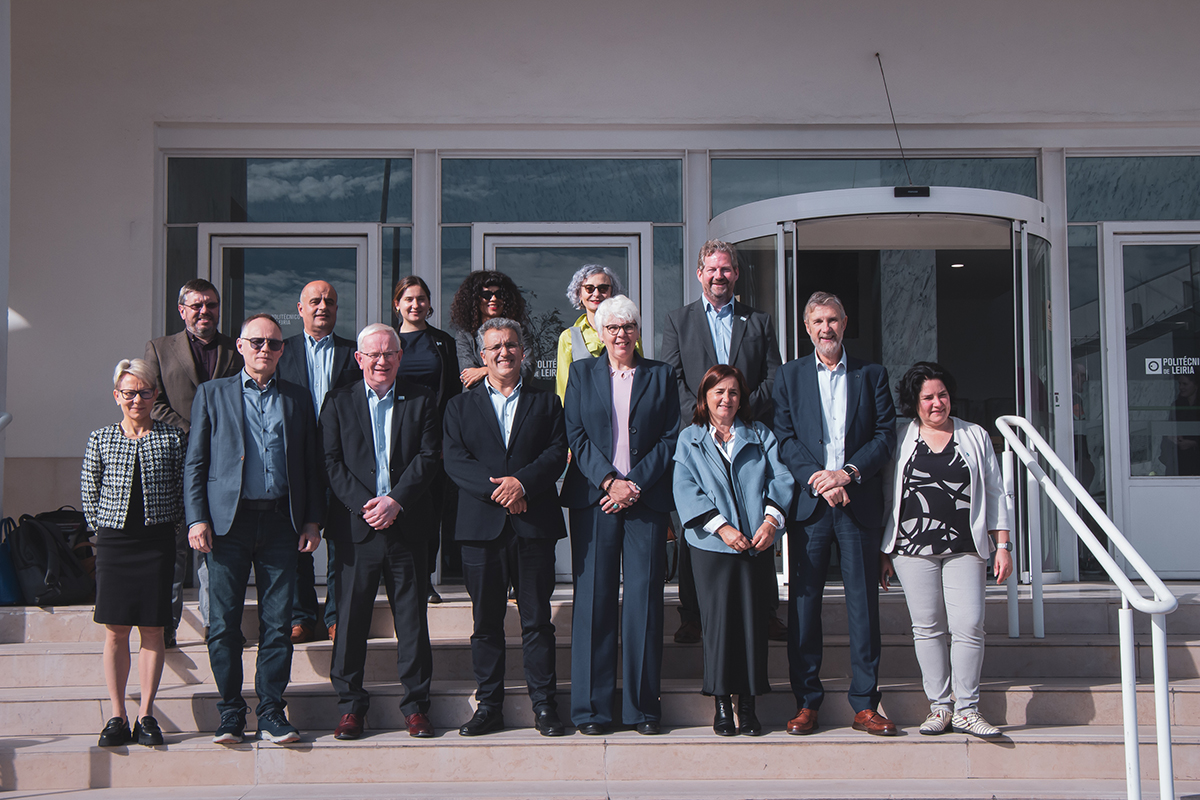
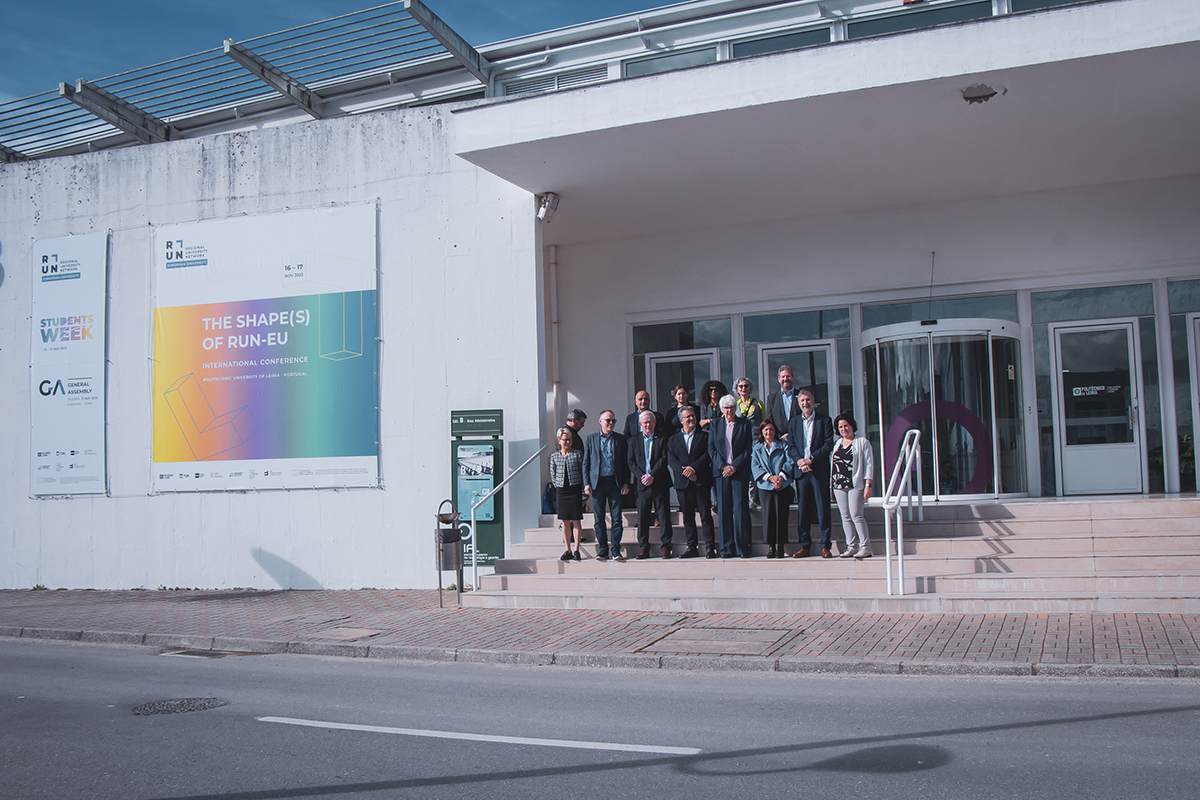
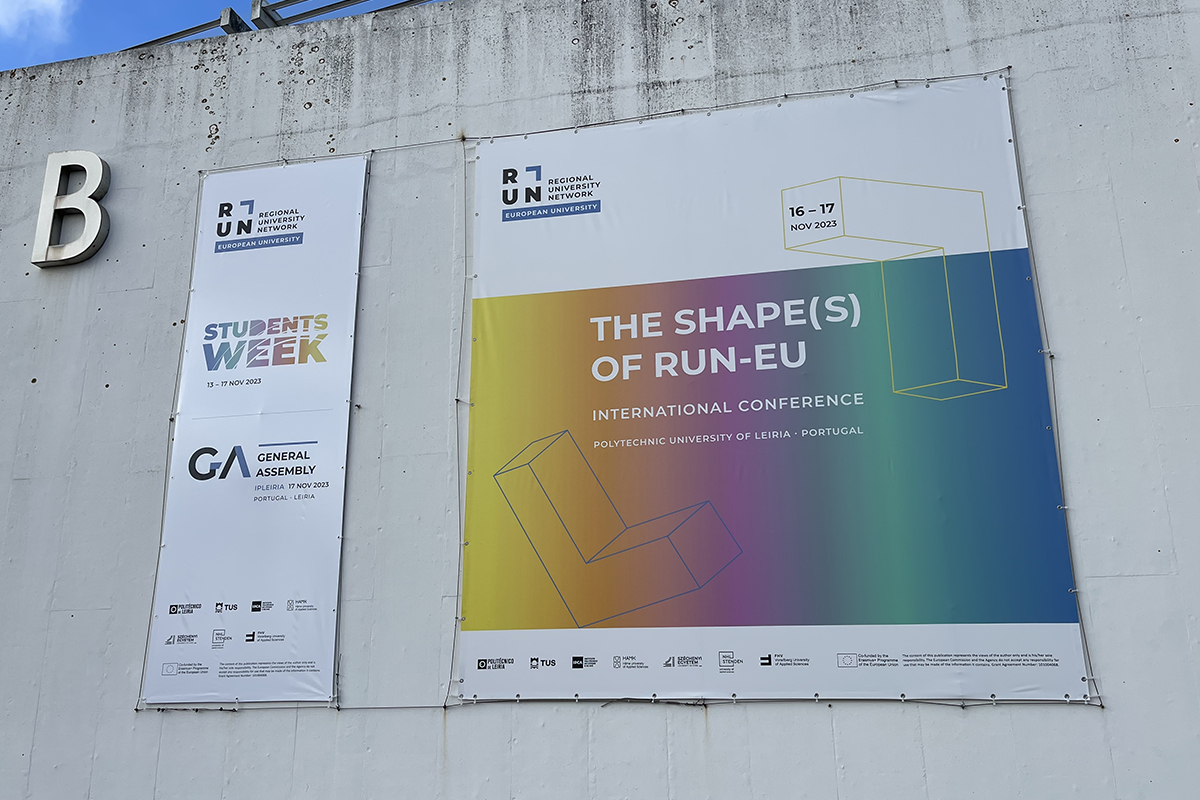
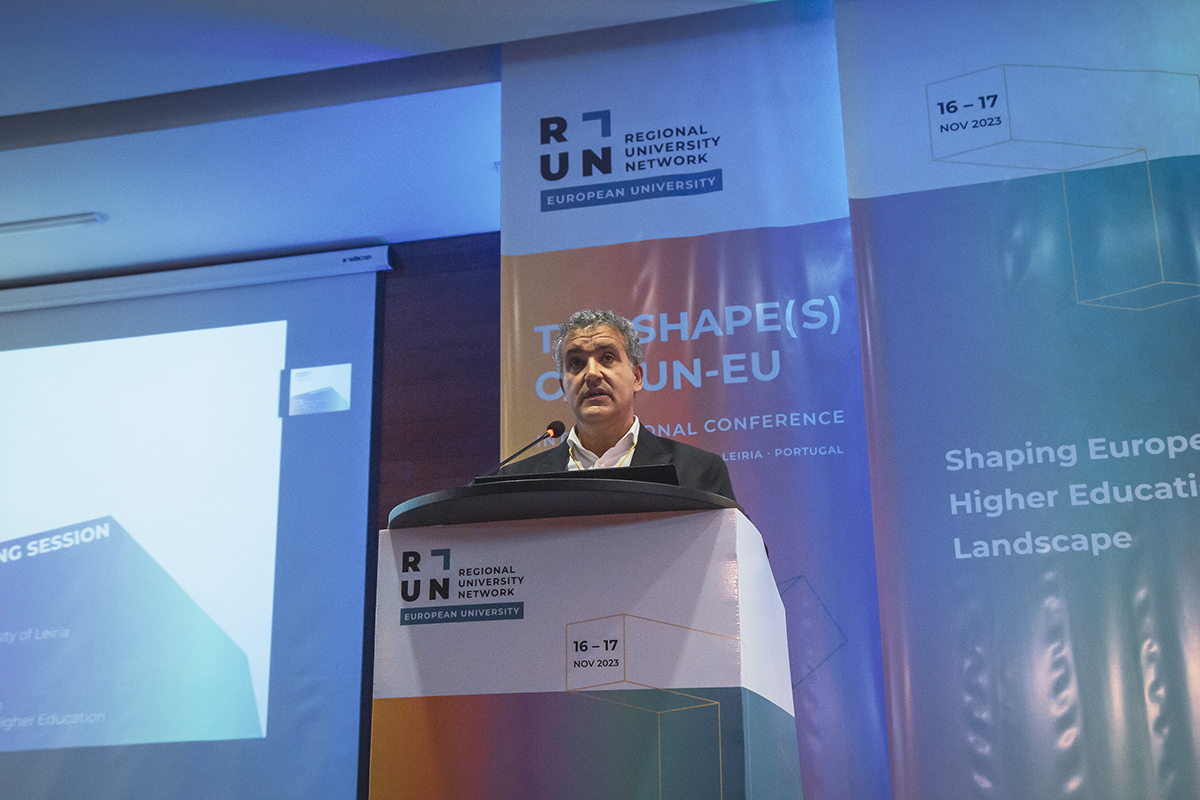
OPENING SESSION
The opening session was attended by the President of the Polytechnic University of Leiria and RUN-EU coordinator, Carlos Rabadão. He first welcomed everyone and then presented the main objectives of RUN-EU 2.0:
‘Throughout this conference, our aim is to engage in discussions that affect institutions at an academic, scientific and cultural level, with the active participation of students, teachers, researchers and associated partners’.
‘RUN-EU 2.0 aims to be a European university with a global dimension, acting as a single entity in awarding European degrees, attracting new students and funding research, development and innovation activities’, he added.
Among the topics to be discussed during the conference these were the ones pointed:
- The evolution of the last three years since the creation of this European University and the main results achieved.
- The importance and role of our institutions in promoting interregional cooperation.
- The future skills of our students and their contribution to a positive, sustainable and innovative regional impact in various fields, including social, cultural, environmental, technological and economic aspects.
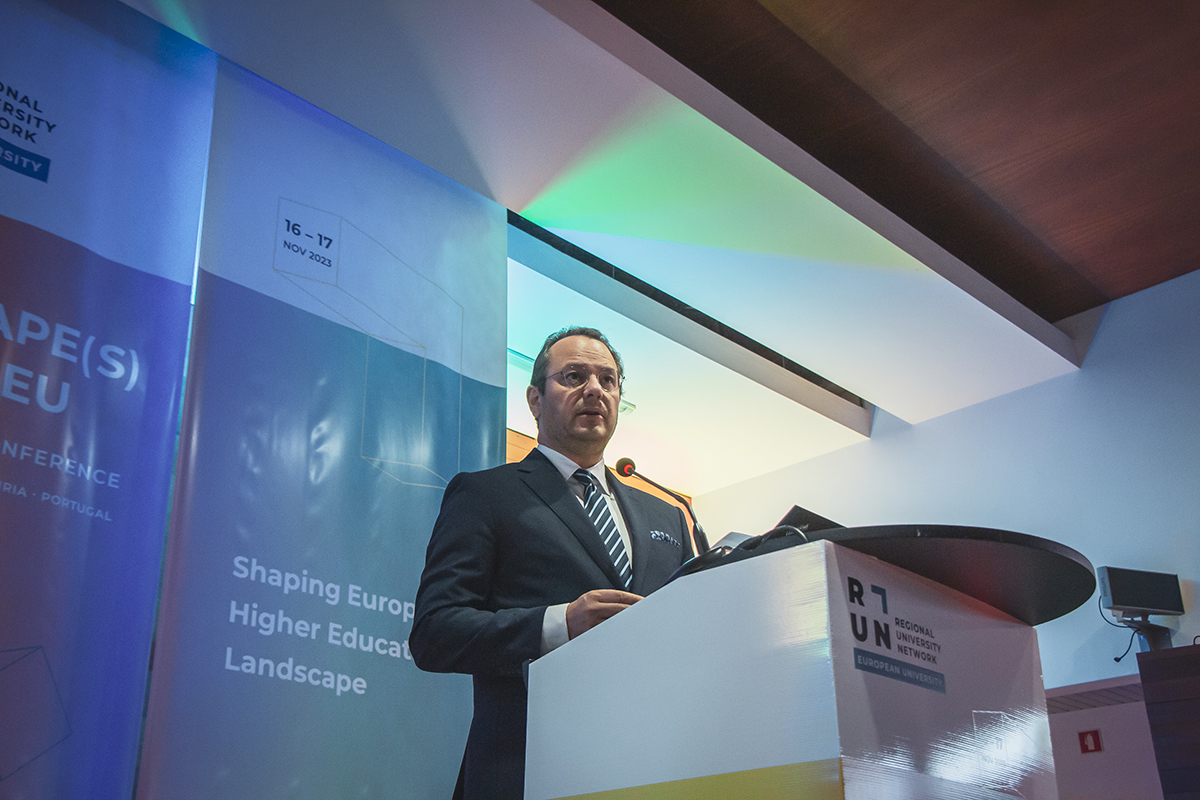
Gonçalo Lopes, Mayor of the Municipality of Leiria, underlined the importance of RUN-EU for the municipality and the region:
‘The approval of the new funding which guarantees the continuity of this project is excellent news for our whole region. Besides confirming the value of this project, it contributes to the growing and fair affirmation and international recognition of the Polytechnic of Leiria.
And continued, adding:
‘It is said that knowledge is the only value which grows when shared and that is precisely what happens in this project, which I hope may continue to be deepened and replicated in the future, contributing to the social transformation of the regions within the European Union’,
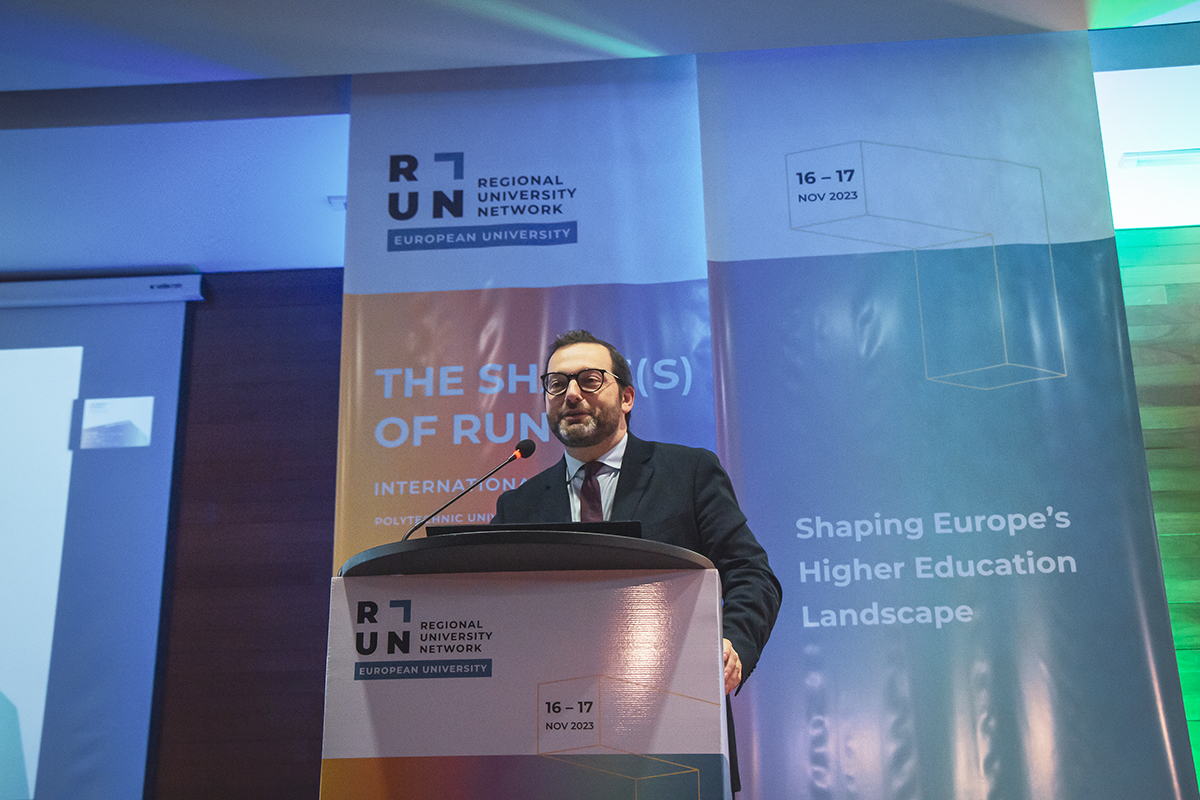
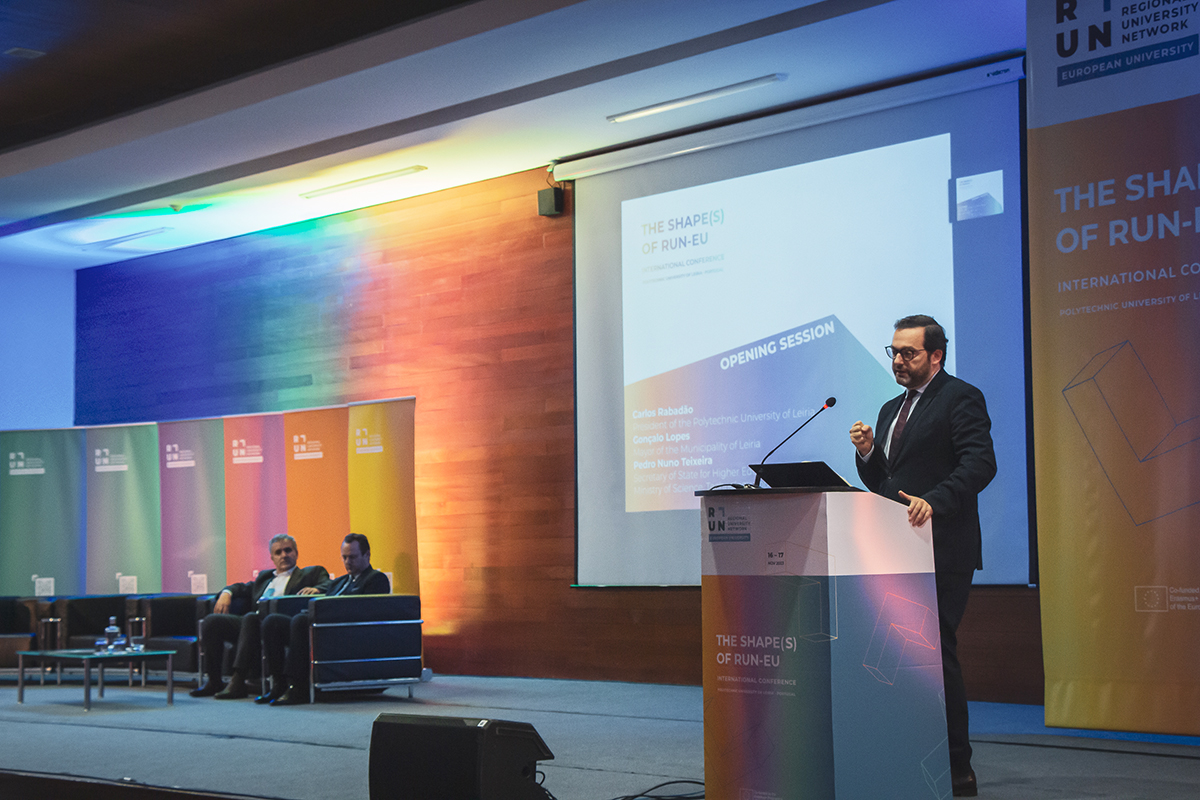
Pedro Nuno Teixeira, Secretary of State for Higher Education, added an important perspective on internationalisation:
‘We need to move to another stage of internationalisation in our education. It changes what we do in research. We have to meet those expectations so that we can improve. We have to be selective, we will say yes to opportunities and activities, but we will also have to say no.
We want to build deeper connections with our partners and this will change the way we connect with our students’.
SPECIAL SESSION
Beyond RUN-EU – A Broader View of European Universities
The special session, chaired by Ruaidhri Neavyn, RUN-EU Special Advisor/Higher Education Authority, Ireland, emphasised collaboration over profit. Neavyn highlighted the importance of working together and fostering deeper connections for the future, especially for the benefit of students. The focus was on collective learning and collaboration.
The session featured several guest speakers, both online and in person:
- Sophia Eriksson Waterschoot – Director for Youth, Education and Erasmus+ / European Commission representative (Online)
- Ludovic Thilly – University of Poitiers, Executive Vice-Rector for the EC2U Alliance and European Networks / Chair of the FOREU2 group (Online)
- Cesaltina Pires – Full Professor at the Department of Management, University of Évora / EU GREEN Alliance
- Ricardo Drosinos – Student Council – NHL Stenden University of Applied Sciences
- RUN-EU Presidents / Rectors / CEOs
Sophia Eriksson Waterschoot joined the conversation online, expressing the goal of creating a new generation of European students who can work together to build a European identity. The aim was for the alliances to serve as role models for higher education centres and contribute to sustainable higher education activities.
Ludovic Thilly also participated online, emphasising the desire for diversity and promoting a new phase of consolidation. The growth of the Alliance, starting with seven universities and continuing to expand, was noted.
Cesaltina Pires discussed the Alliance’s strategy, highlighting the goal of creating globally recognised universities with a structured and sustainable impact on society. Pires stressed the importance of involving all students and staff in the project to make it meaningful.
Vincent Cunnane, President of the Technological University of Shannon, Ireland, and Future Coordinator of RUN-EU 2.0, spoke about the alliance embodying values of sustainability, multiculturalism and inclusiveness. He highlighted the expansion of RUN-EU as a reflection of its potential and a demonstration of regional strengths.
Pertti Puusaari, President/CEO of Häme University of Applied Sciences, Finland, emphasised that pedagogical development is at the core of RUN-EU and should be worked on together with students, staff and regions.
Ricardo Drosinos reflected on the importance of RUN-EU for students, noting its importance in improving education and providing benefits not only for educational values but also for life experiences. Drosinos shared his positive experience of RUN-EU, rating it 9 out of 10 and highlighting the impact of being in Portugal for the first time.

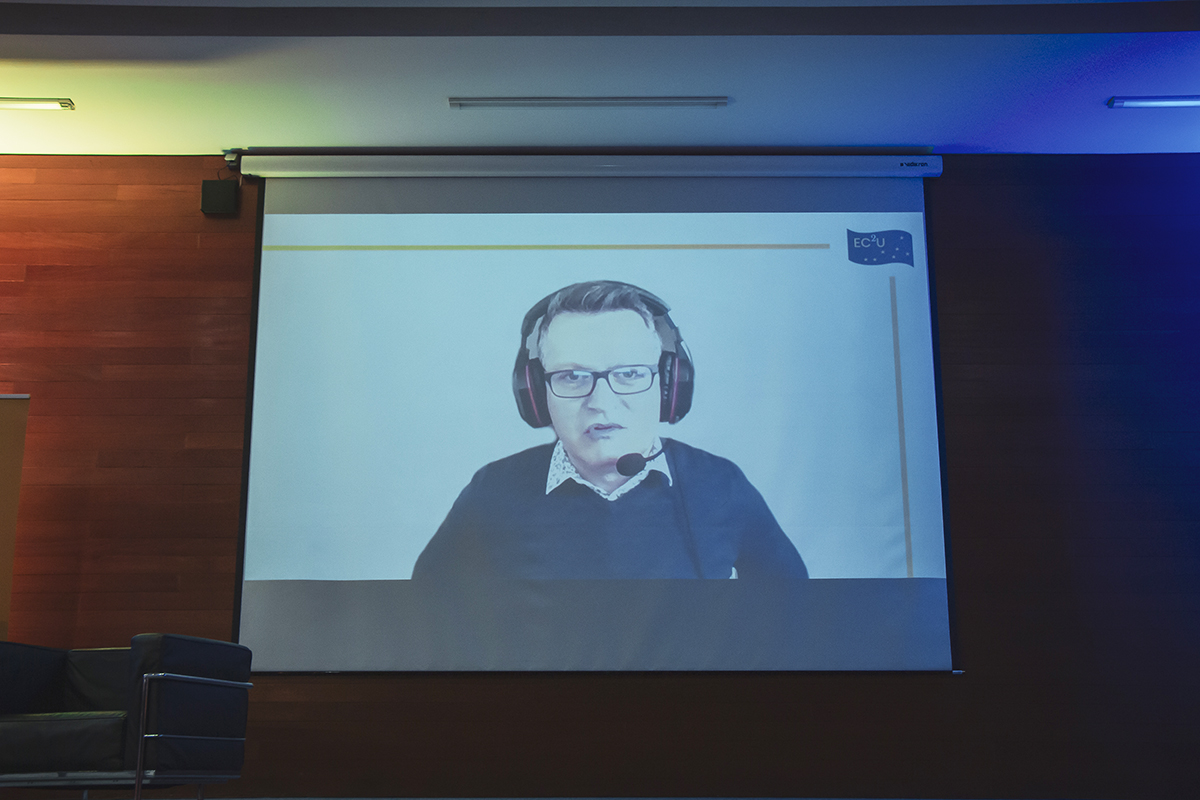
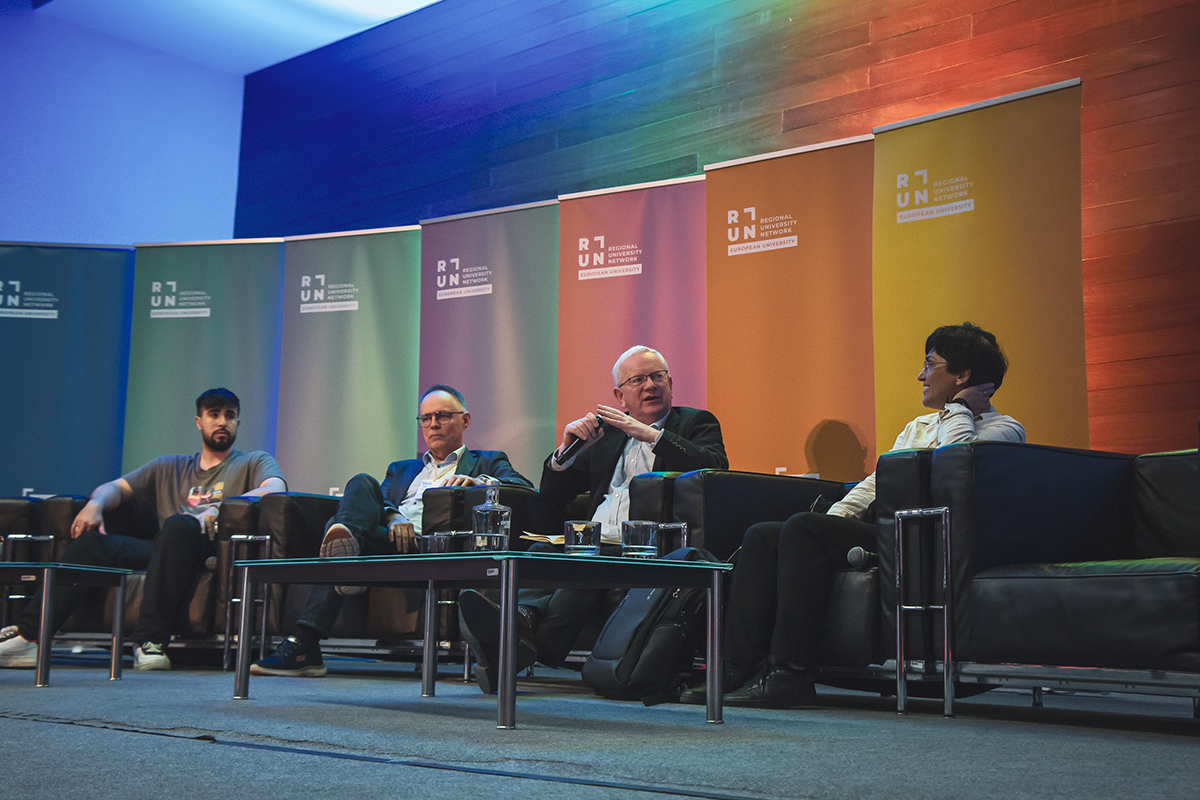
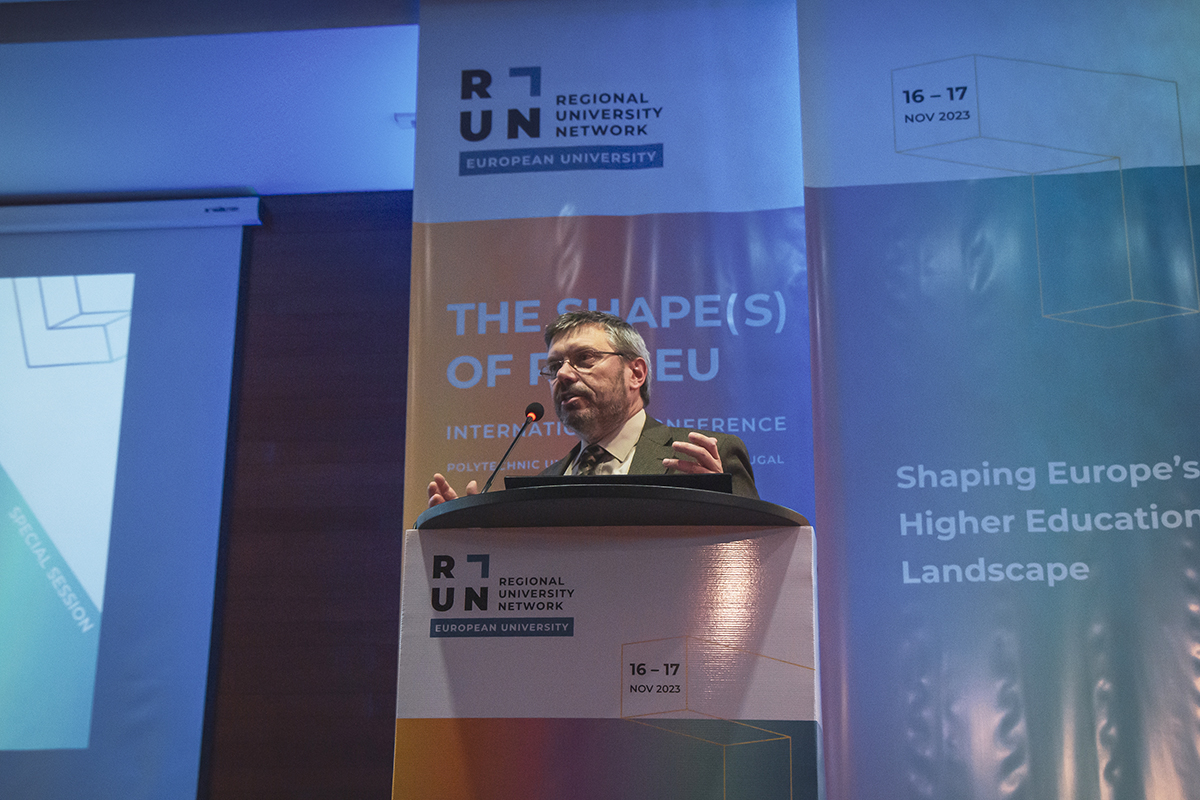
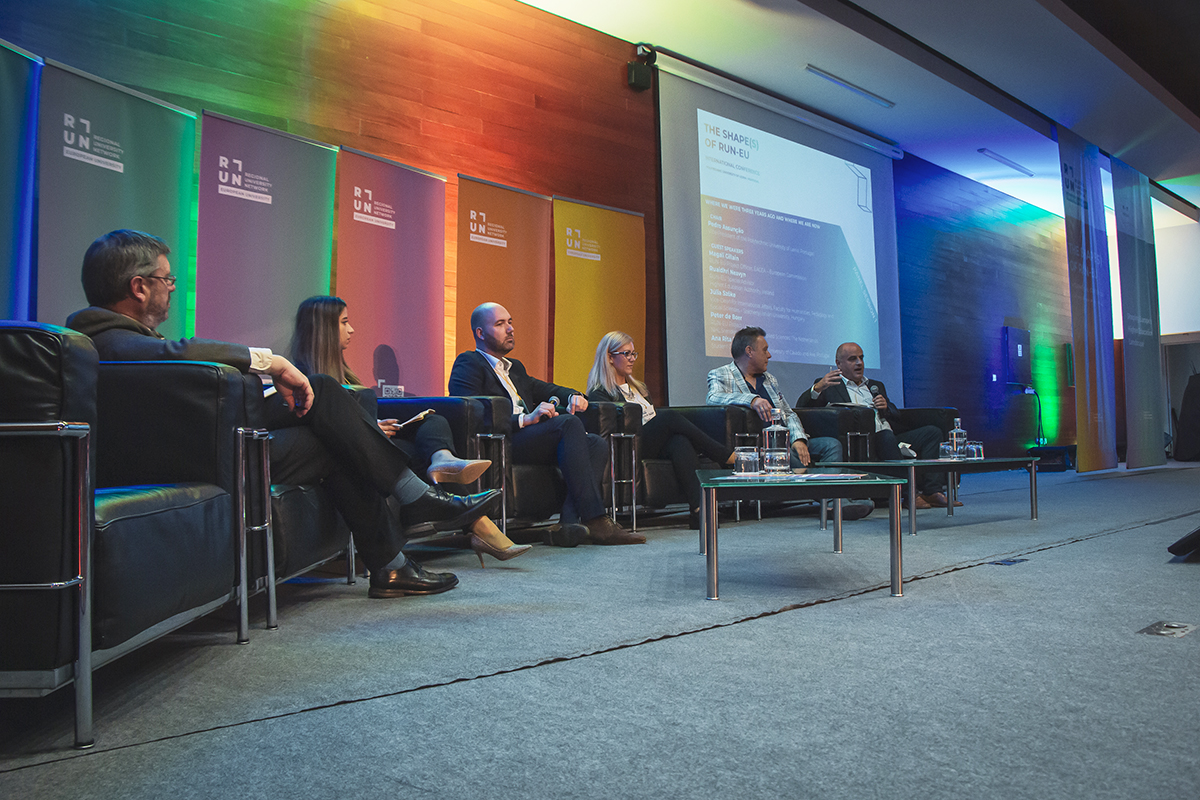

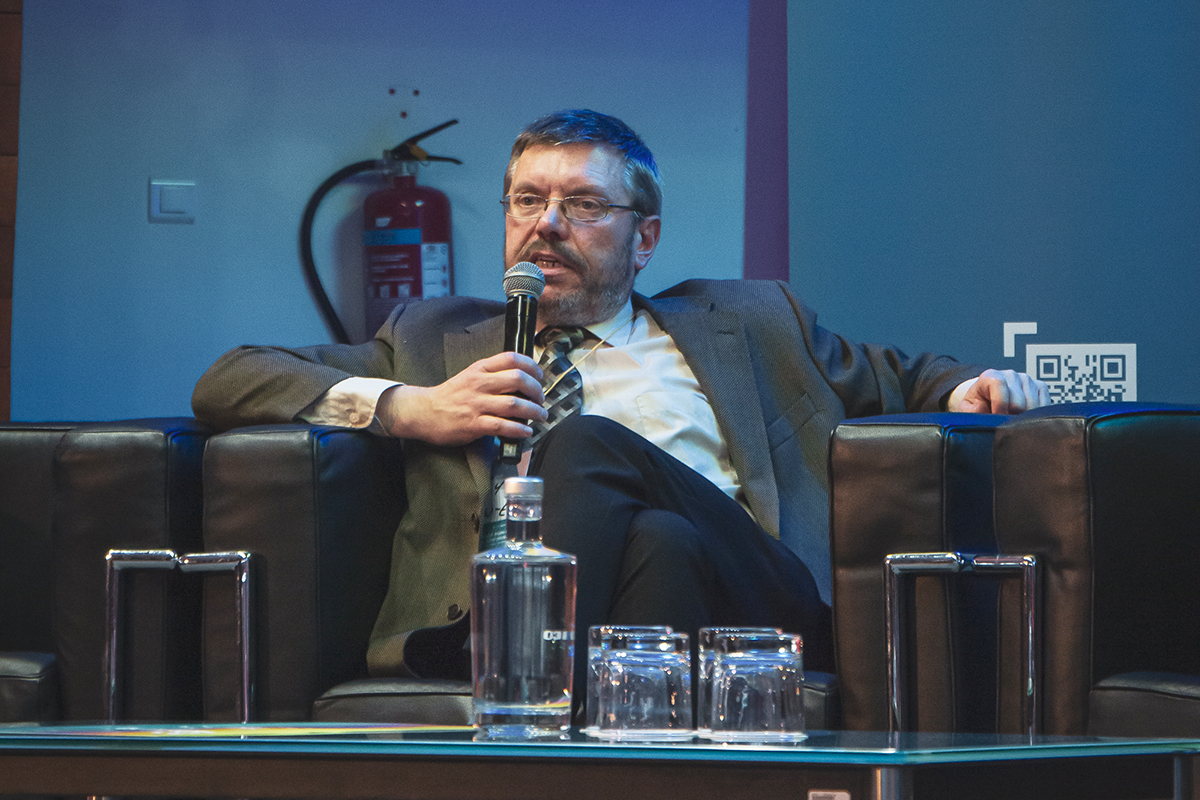
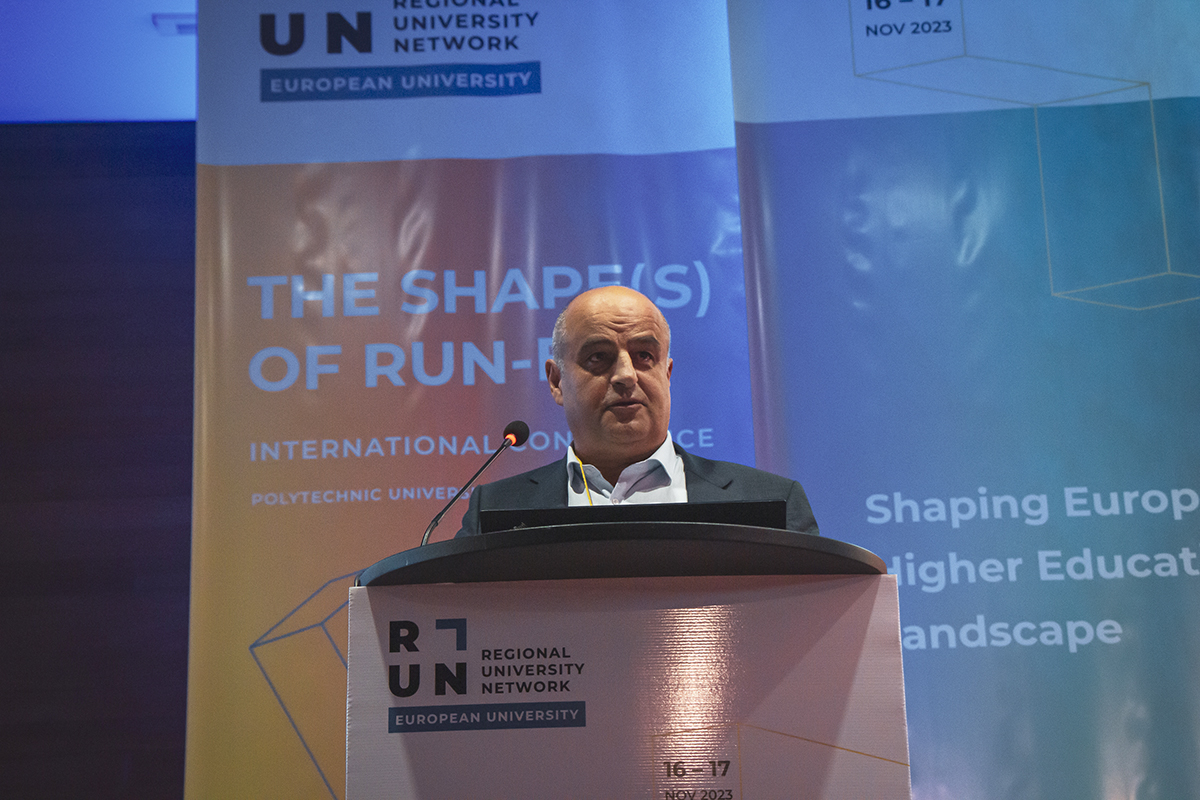
PANEL 1
Situation: Where We Were Three Years Ago and Where We Are Now
The first panel was chaired by Pedro Assunção, Vice President of the Polytechnic University of Leiria, Portugal, who recapped what’s been achieved so far:
‘We are now in a much better position to offer new opportunities and provide new courses and new ways of learning. RUN-EU is a way of improving relations between universities so that they can learn from each other’.
The guest speakers of this panel were:
- Harald Moosbrugger – Head of the Department of Science and further Education, Austria
- Ruaidhri Neavyn – RUN-EU Special Advisor / Higher Education Authority, Ireland
- Júlia Szőke – Vice-Dean for International Affairs, Faculty for Humanities, Pedagogy and Social Sciences – Széchenyi István University
- Peter de Boer – RUN-EU Project Leader – NHL Stenden University of Applied Sciences
- Ana Rita Freitas – Student Council – Polytechnic University of Cávado and Ave
When asked what are the benefits of participation in RUN-EU activities from the student’s perspective and what they expect in the future, Ana Rita Freitas answered:
‘Internationalisation and networking are the main benefits for students.
RUN-EU is great for improving our English, getting in touch with new cultures and making new friends. I can now say that I am a student with a new and more open view of the world, due to the new international experiences I have gained.
There’s always room for improvement, but we students felt that our voices were heard.
For the second cycle of RUN-EU we want even more programmes and opportunities. We are very excited about the two new universities that are now joining the Alliance. That means two more countries to visit’.
Ruaidhri Neavyn summed it up by adding:
RUN-EU is a way of life. The future for us is to strengthen our collaborations to form the European Union as an academy. The next stage is to create new societies and expand our activities. We want to make our family bigger and more united’.
PANEL 2
Transits: Crossing Regions – Fostering Interregional Cooperation
The second panel was chaired by Liam Brown, Vice-President for RD&I at the Technological University of the Shannon, Ireland, and featured guest speakers:
- John Edwards – Secretary General of EURASHE
- Mathias Bertsch – Head of Regional Development, Economic Development Agency / RUN-EU Associated Partner, Vorarlberg University of Applied Sciences
- Ileana Greca – Vice-Chancellor for Internationalisation and Cooperation, University of Burgos
- Ricardo Moura – Design Manager – SKANSTEC • Portugal / Ireland
- Azzah Uwineezah – Student Council – NHL Stenden University of Applied Sciences
The panel highlighted the organisation’s role in transforming students from an academic to an entrepreneurial level.
Azzah Uwineezah pointed up the positive impact of cultural engagement on students but suggested that more opportunities were needed.
Ricardo Moura stressed the importance of innovation and challenges for young people, noting that industry requires a mindset that thinks outside the box.
Ileana Greca highlighted the wealth of knowledge within the diverse group and the obligation to turn it into solutions.
During a public Q&A session, the discussion shifted to social inclusion, where panellists such as Ricardo Moura underlined the importance of balancing equal opportunities for all, acknowledging the role of European funds.
Mathias Bertsch emphasised the community aspect of inclusion, while John Edwards called attention to the need for effective action.
With regard to interregional cooperation, Ileana Greca mentioned the importance of recognising and respecting the different rules in each country, while Ricardo Moura addressed the importance of physical relations with other cultures, promoting inclusivity as a win-win situation beyond the mere exchange of skills.
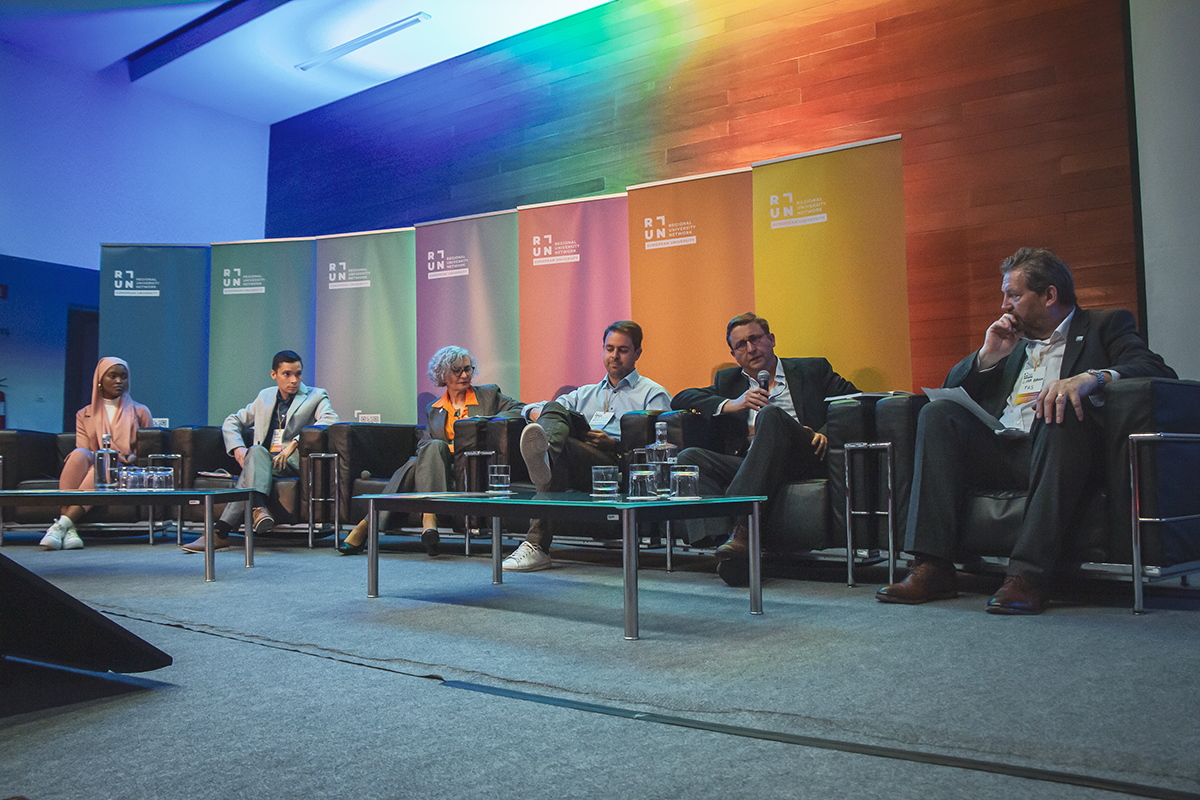
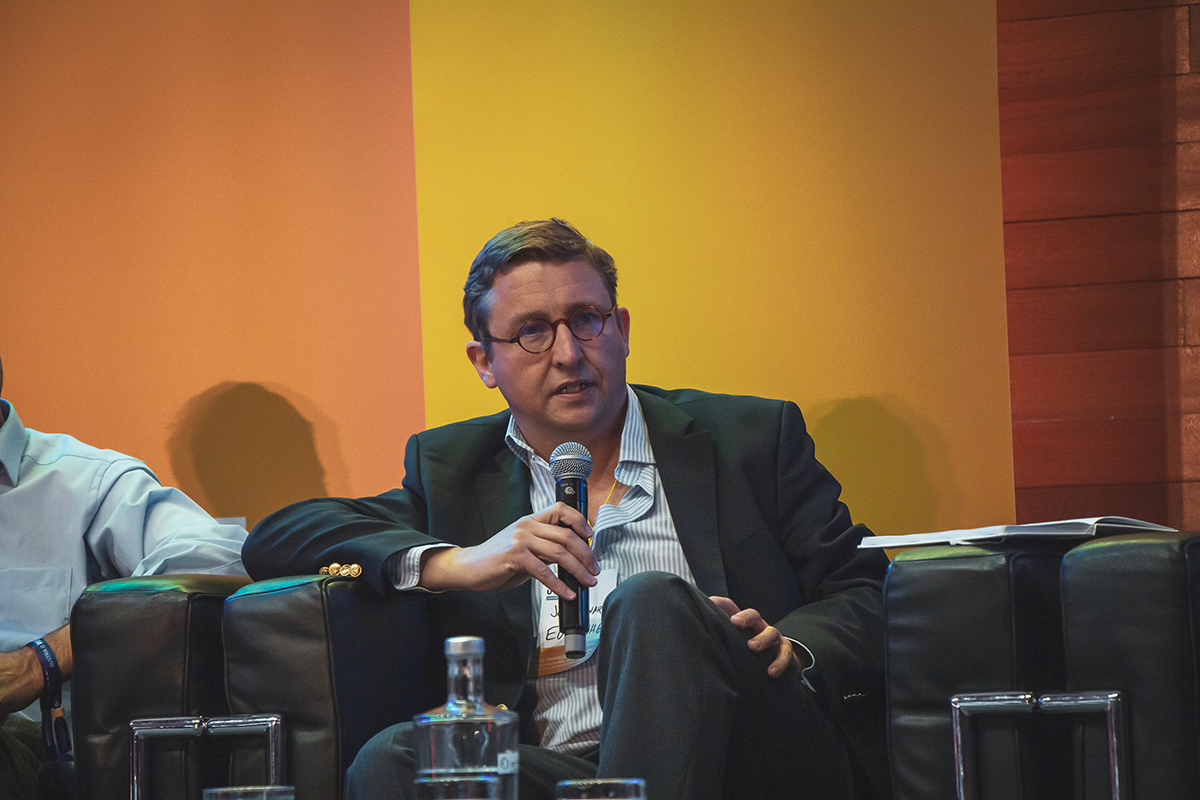
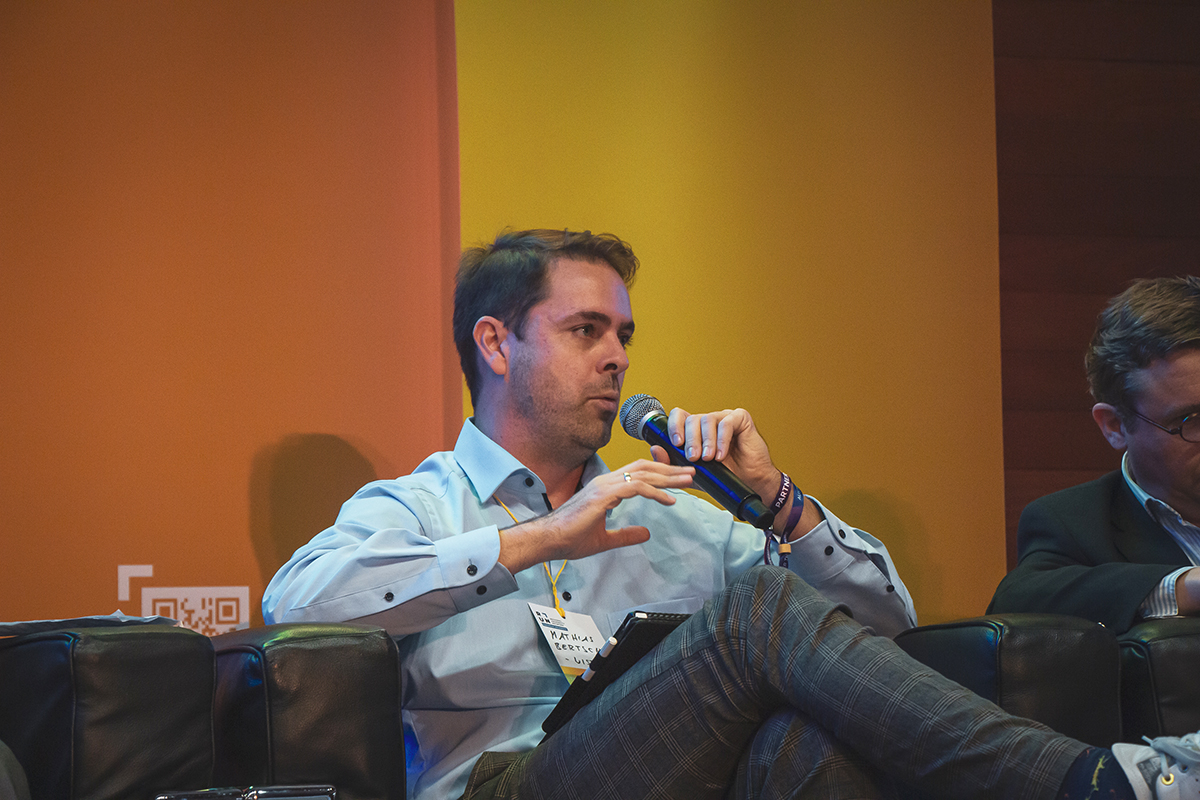

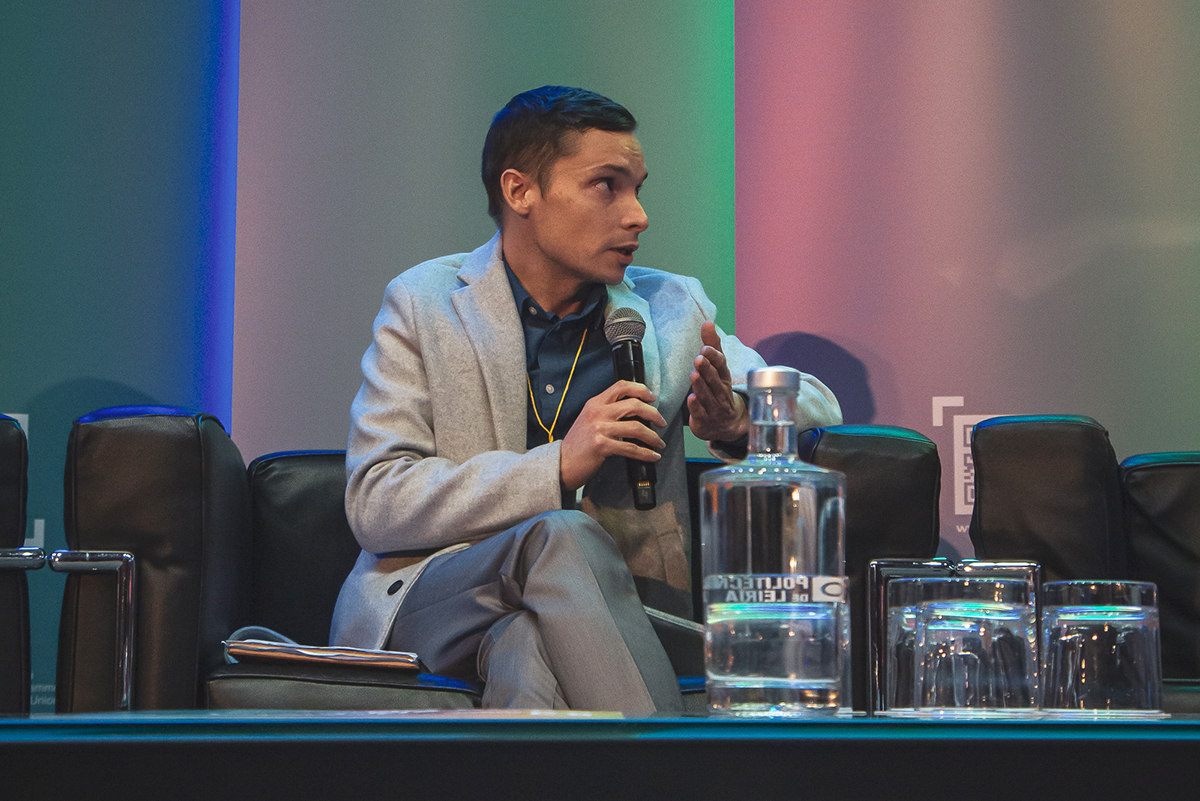
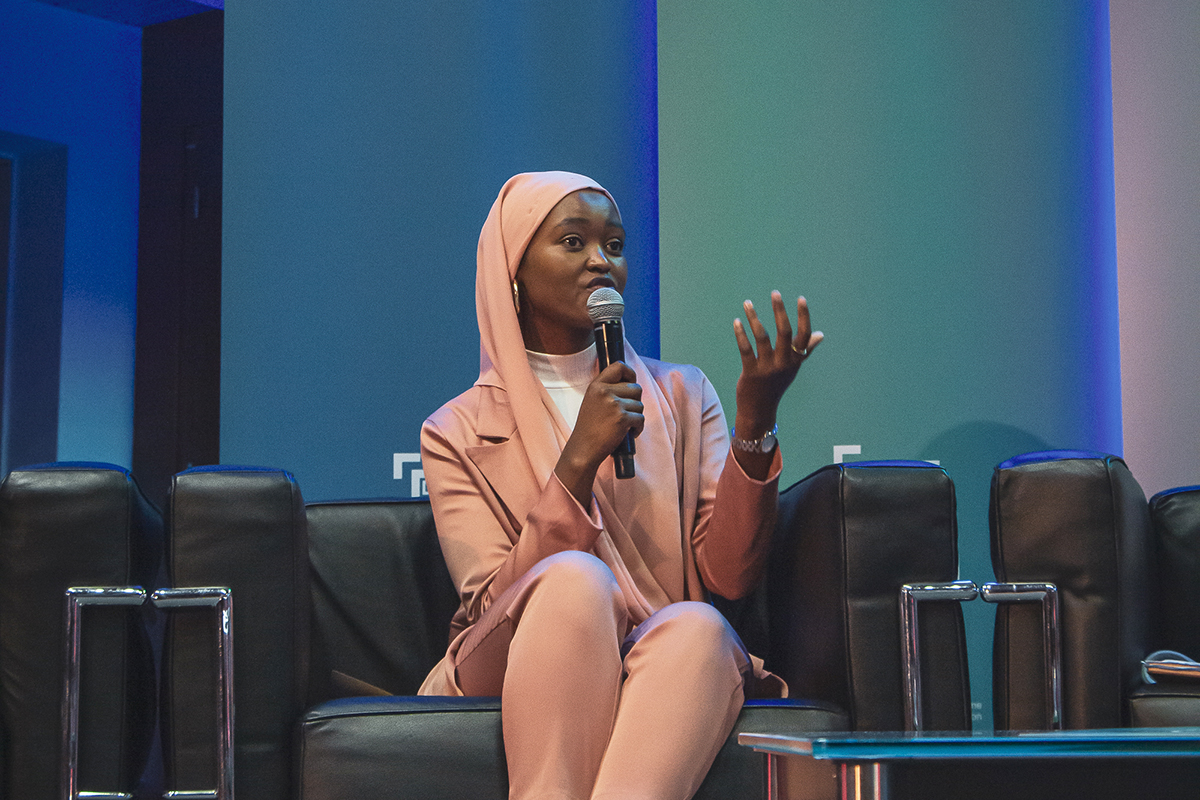
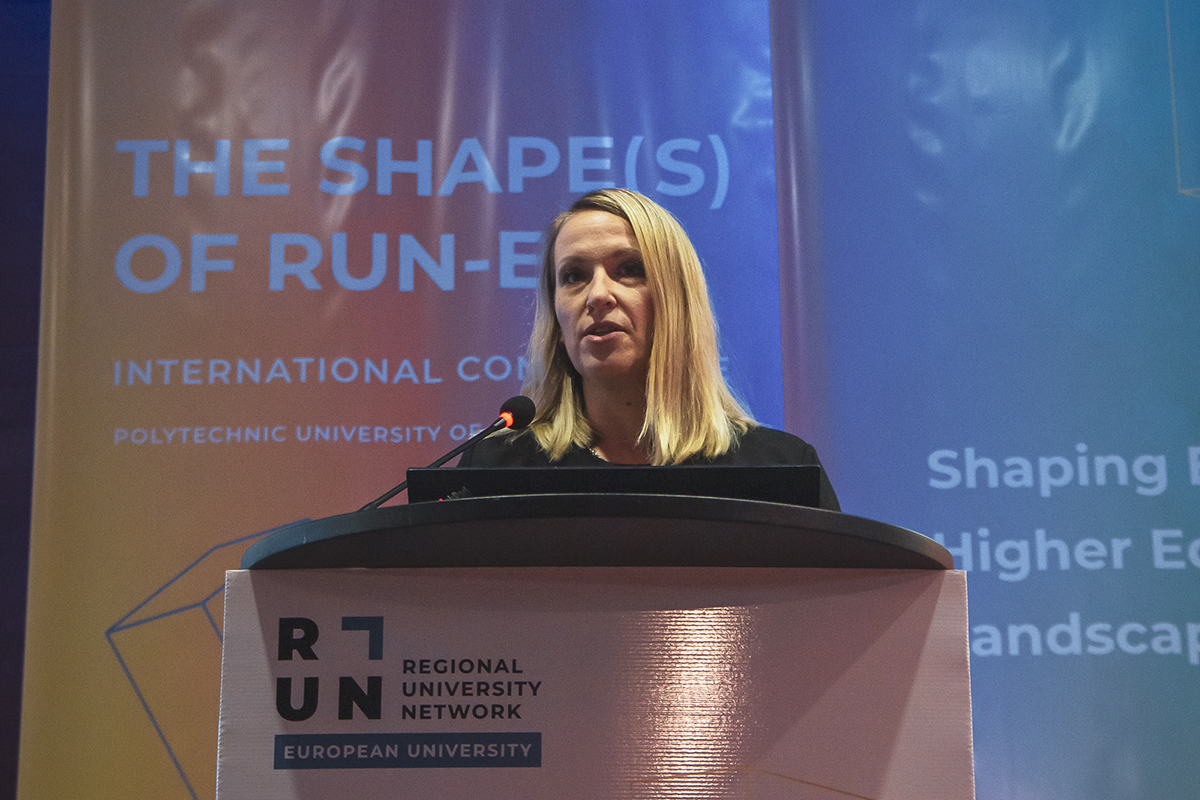
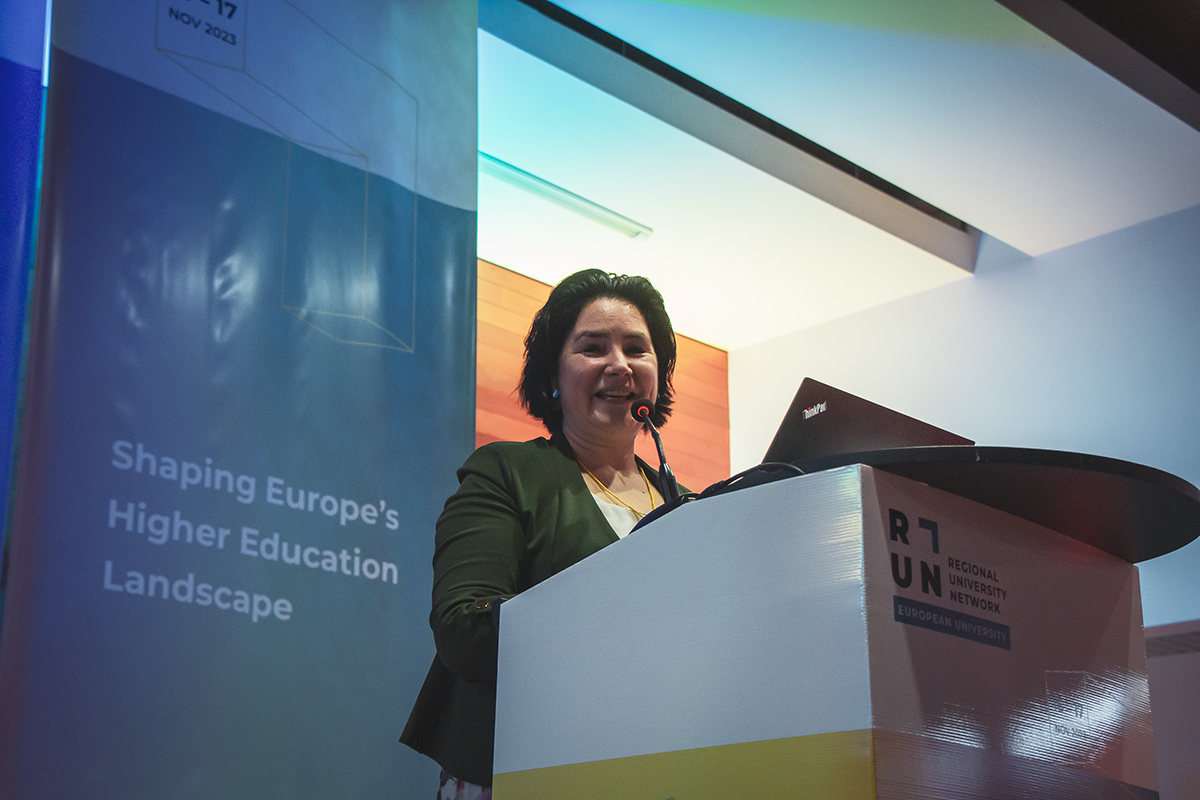
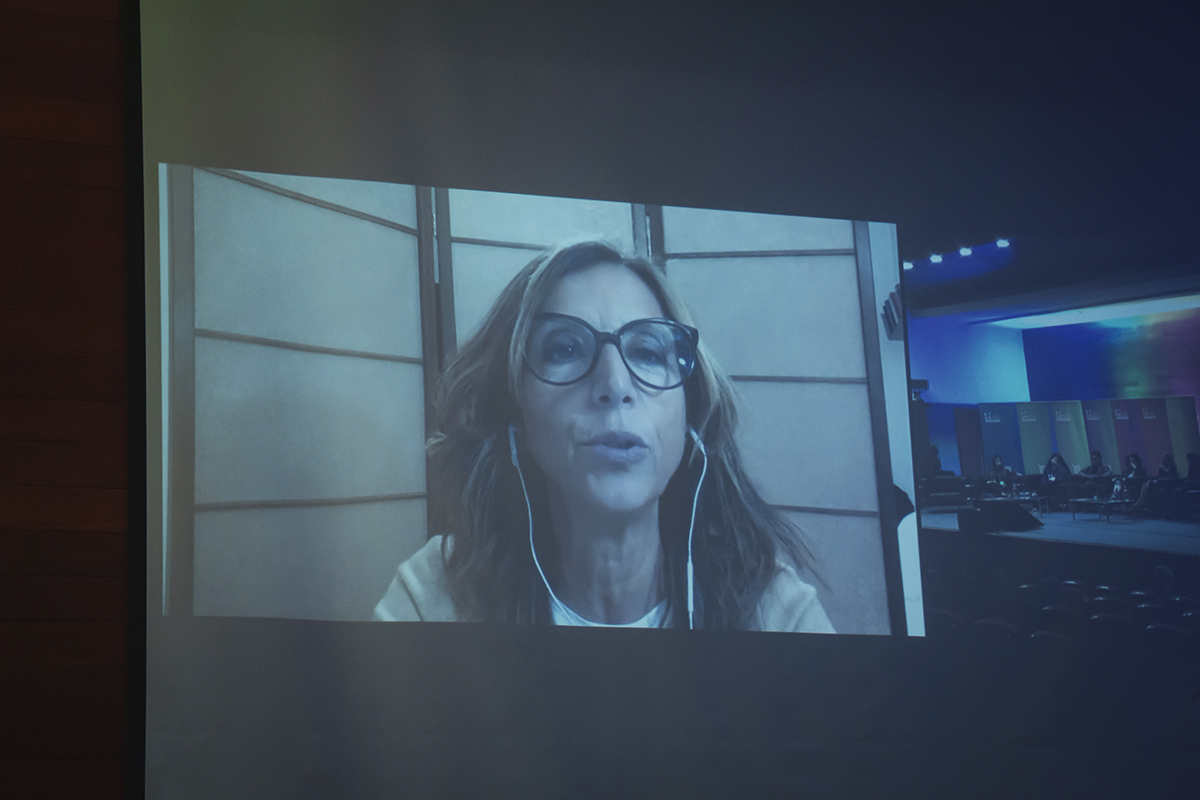
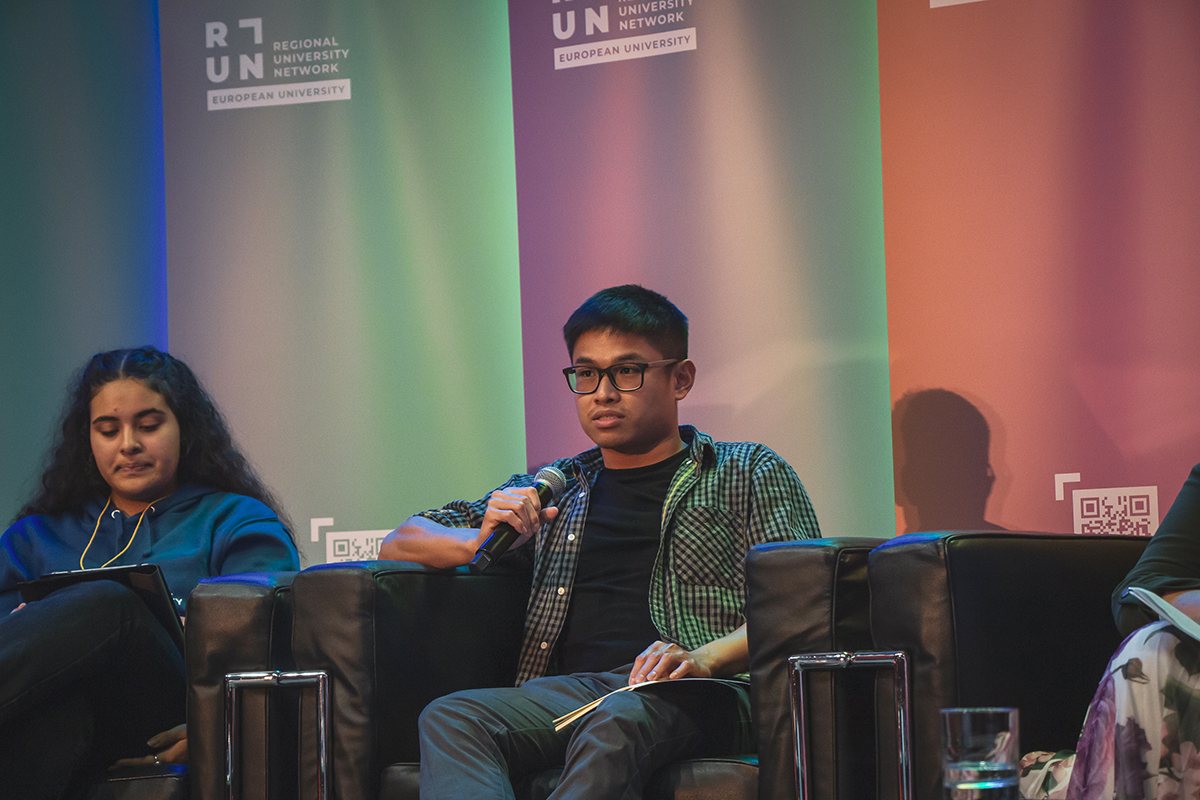
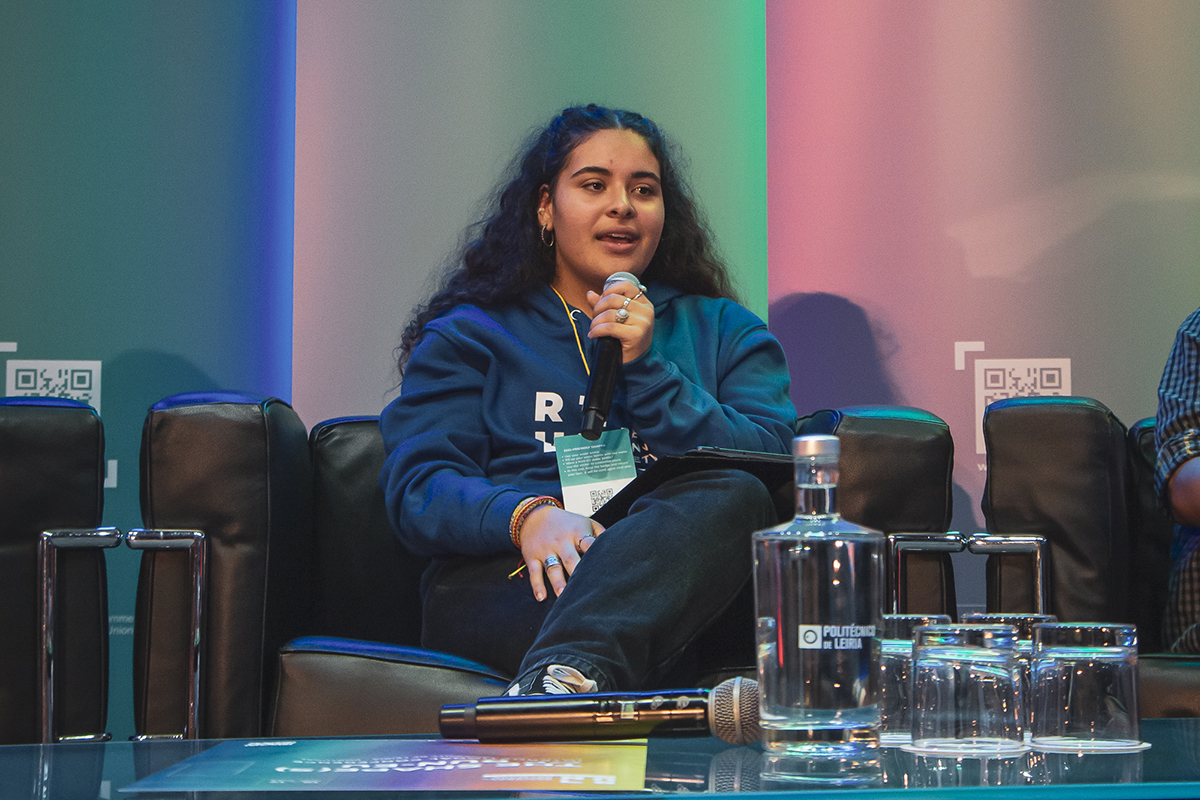
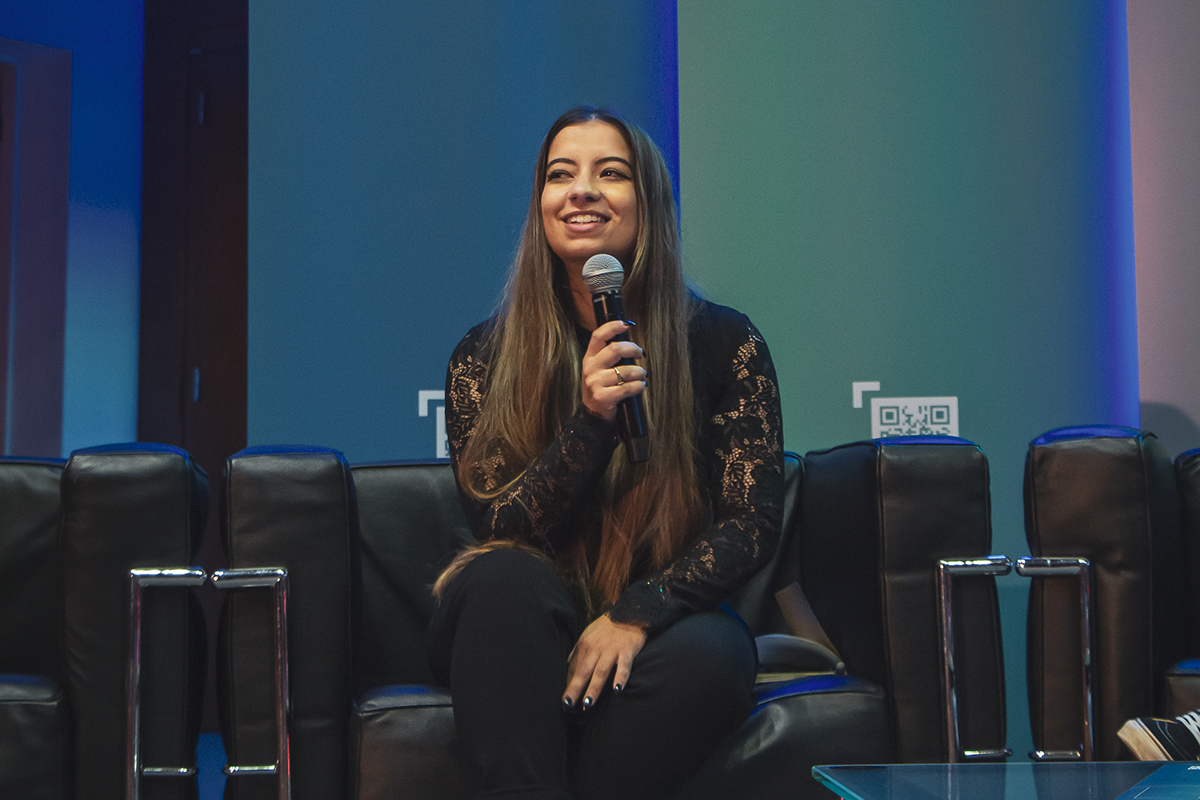
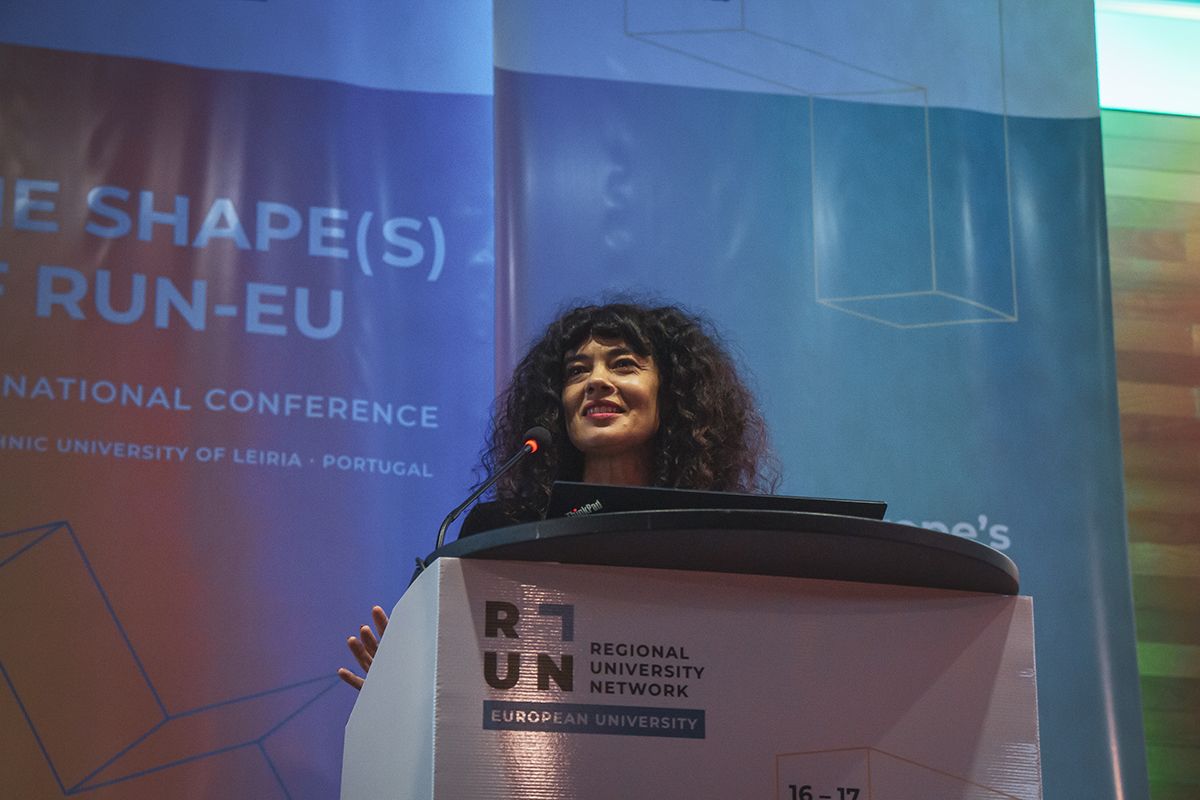
PANEL 3
Learning: The Students of the Future Now – Skills of the Future and Regional Impact
The third and final panel was chaired by Paula Tavares, Vice-President of the Polytechnic University of Cávado and Ave, Portugal.
The guest speakers for this panel were:
- Liisa Postareff – Häme University of Applied Sciences
- Mieke Demeyere – Vice-Rector – Howest University of Applied Sciences
- Antonella Poce – Professor of Experimental Pedagogy – University of Rome Tor Vergata
- Billy Shu Hieng – Student Council – Technological University of the Shannon
- Ainoa Llanos – Student Council – Polytechnic University of Leiria
- Ana Rita Freitas – Student Council – Polytechnic University of Cávado and Ave
Paula Tavares highlighted the importance of Short Advanced Programmes (SAPs), which extend beyond students and professors to include staff. These programmes aim to cultivate future advanced skills and contribute to European values and identity. Emphasising community collaboration, Paula envisioned the future of European universities shaped by the collective efforts of the RUN-EU community, emphasising the essence of being both educational and enjoyable.
Liisa Postareff highlighted the challenge of preparing students for unknown future jobs and technologies. Identifying communication, collaboration and teamwork as critical future skills, she stressed the need for innovative programmes involving industry representatives, exposure to diverse scenarios and individual feedback to meet students’ evolving needs.
Billy Shu Hieng reflected on the personal growth and deep friendships formed through his journey with RUN-EU. He highlighted the central role of students in the organisation and expressed his belief that it is a great university for all.
Mieke Demeyere emphasised the importance of the face-to-face component of the programmes.
Paula Tavares shared plans for the second cycle, using external resources and highlighting the role of SAPs in the preparation process.
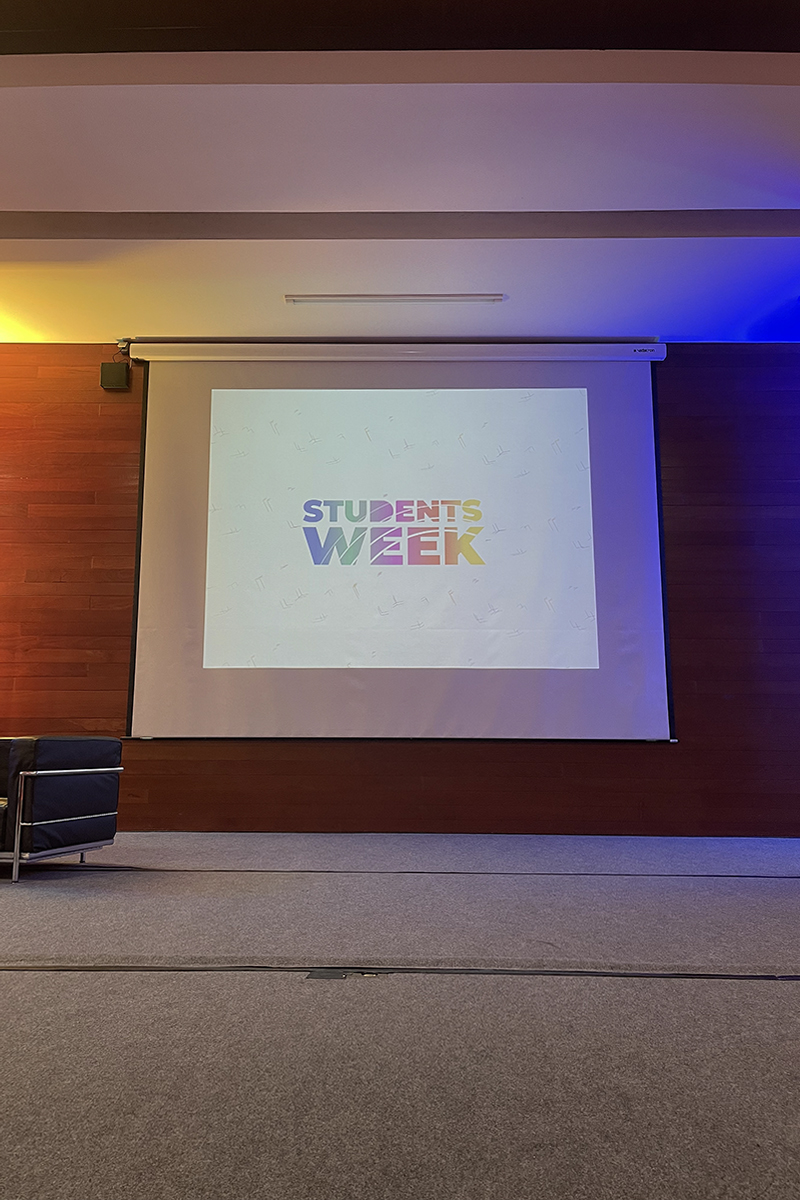
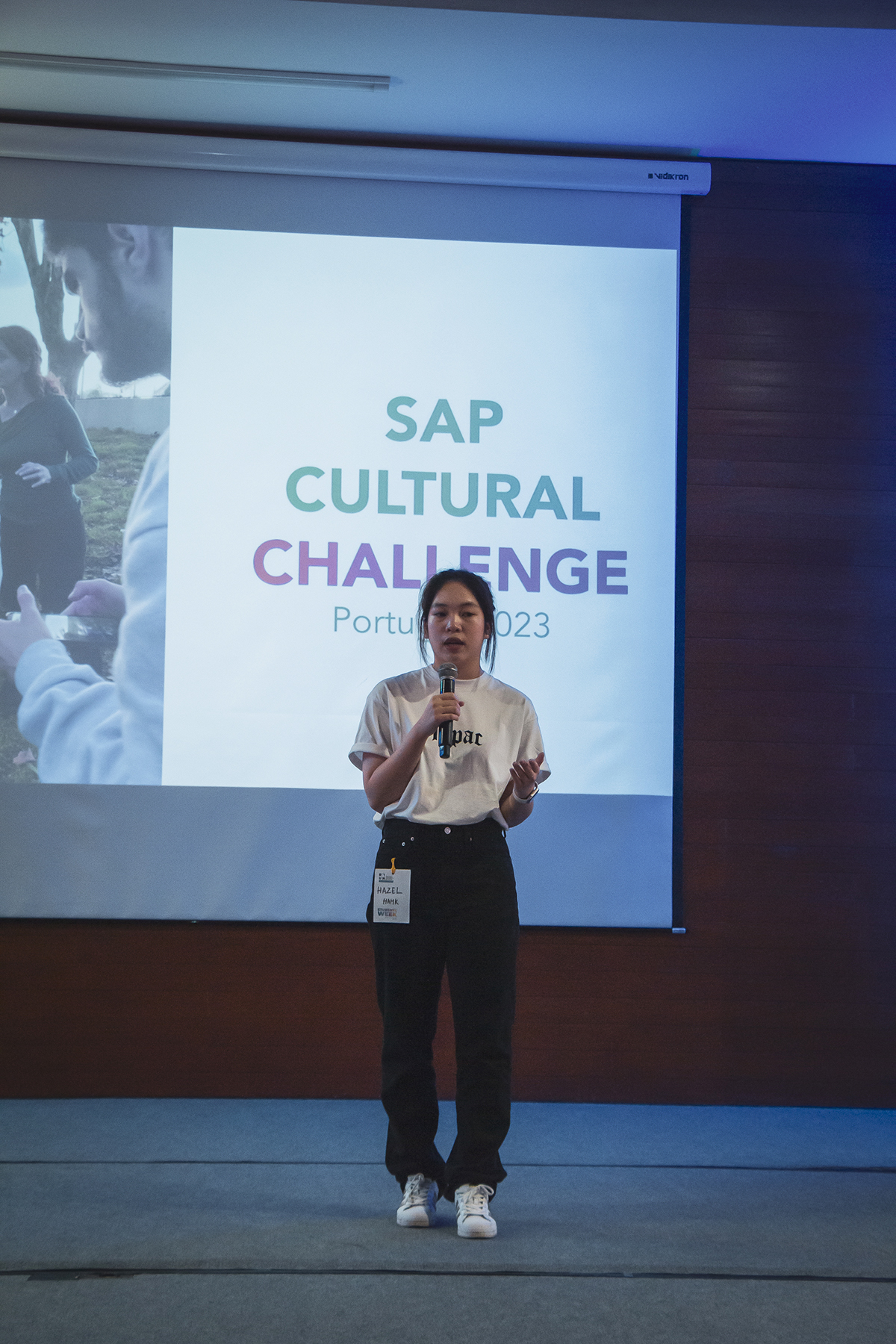
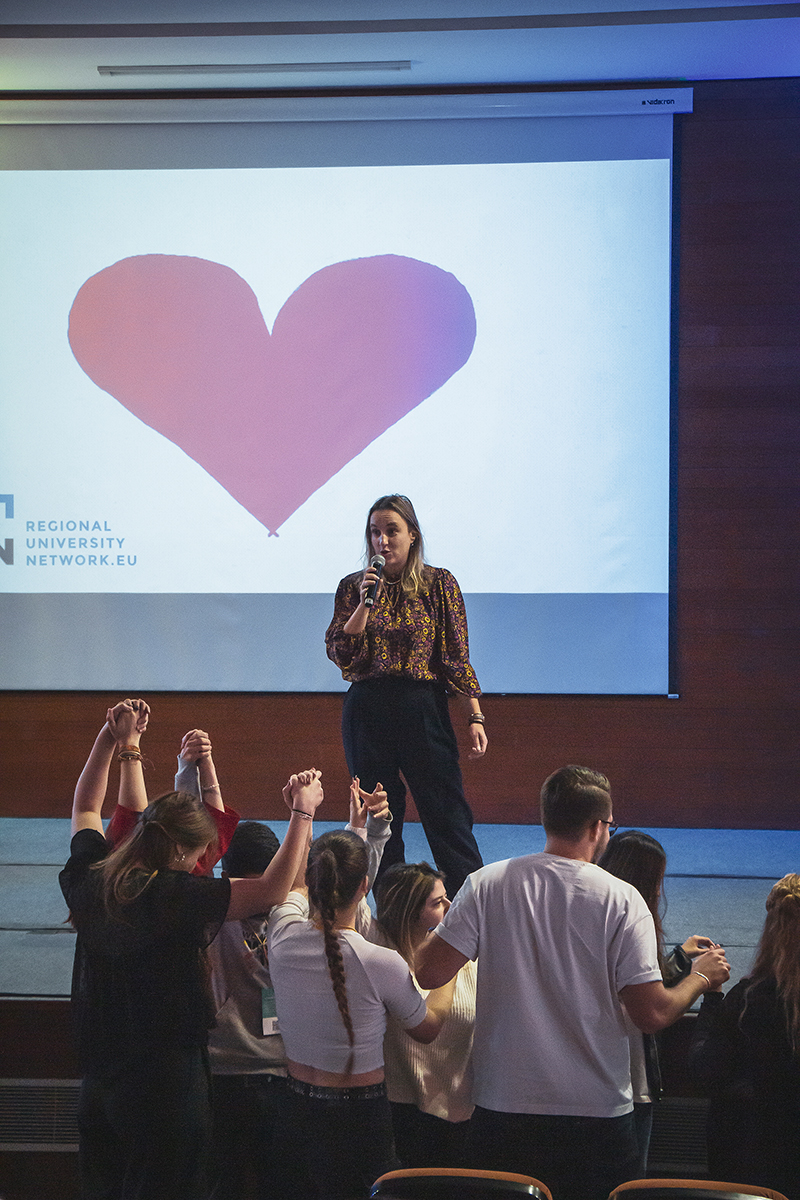
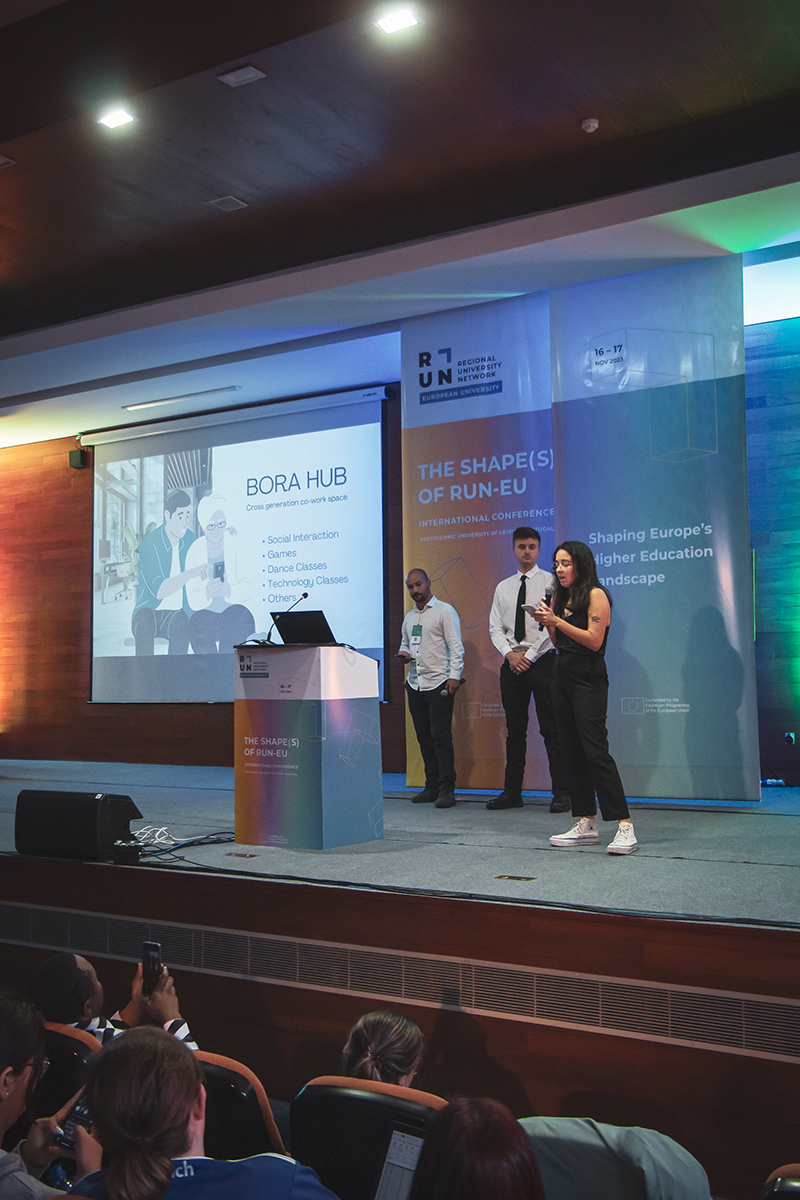
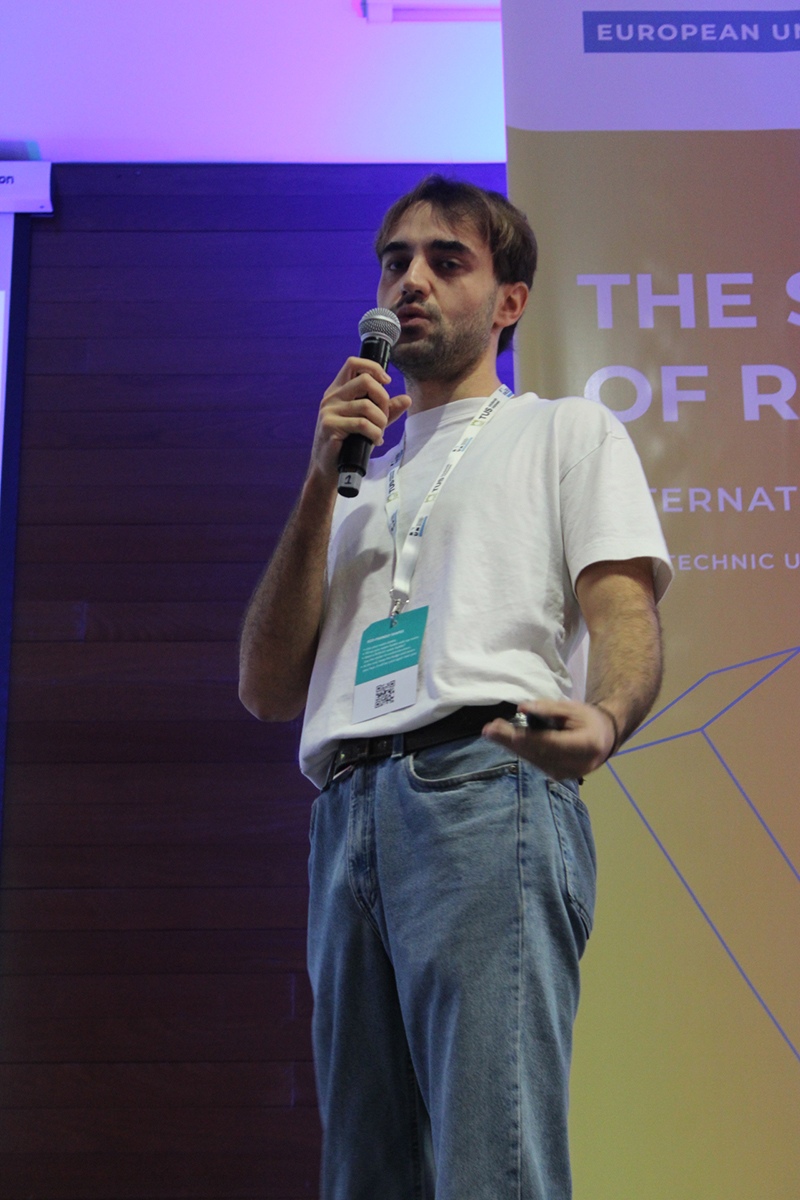
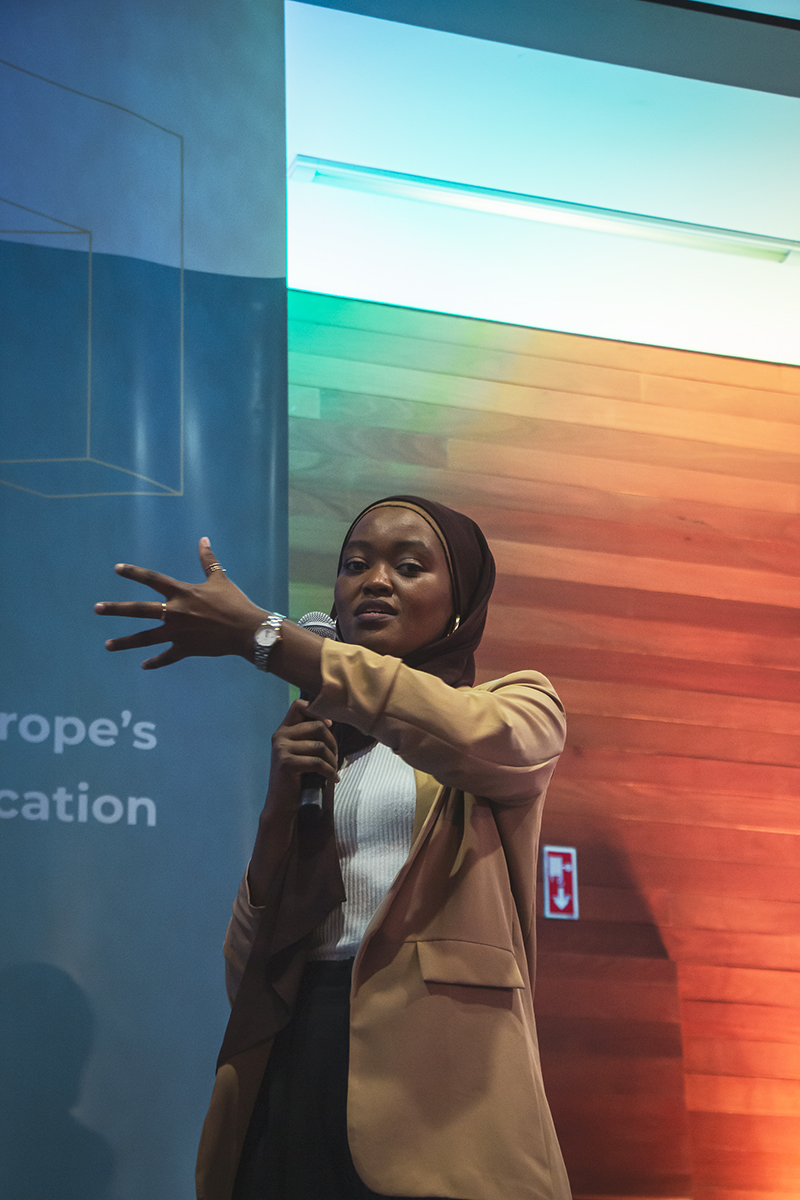
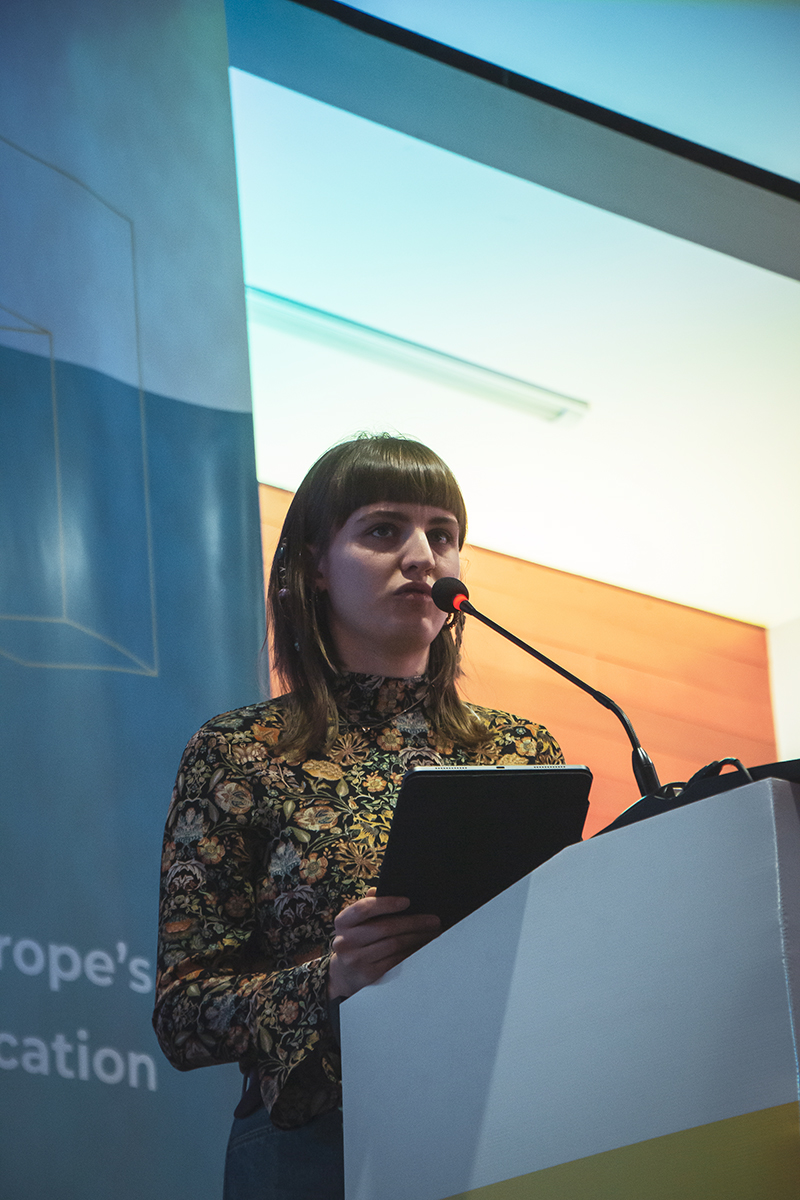
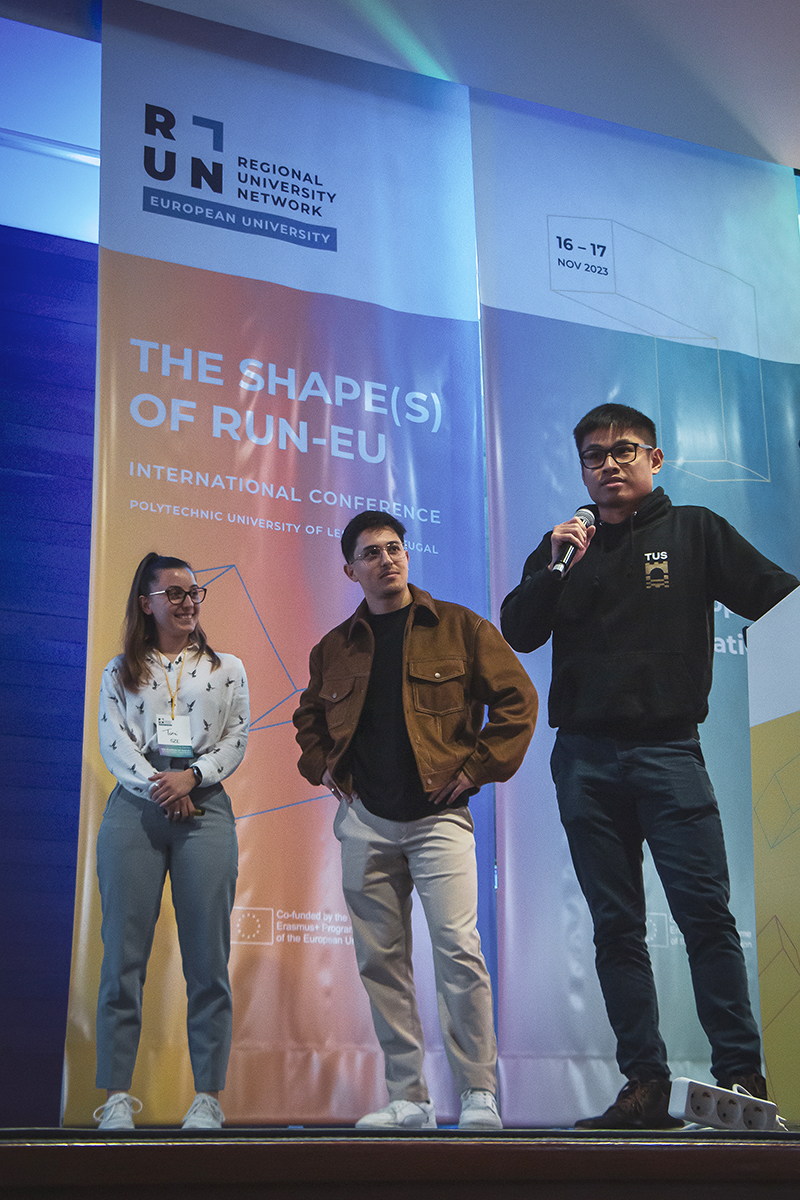
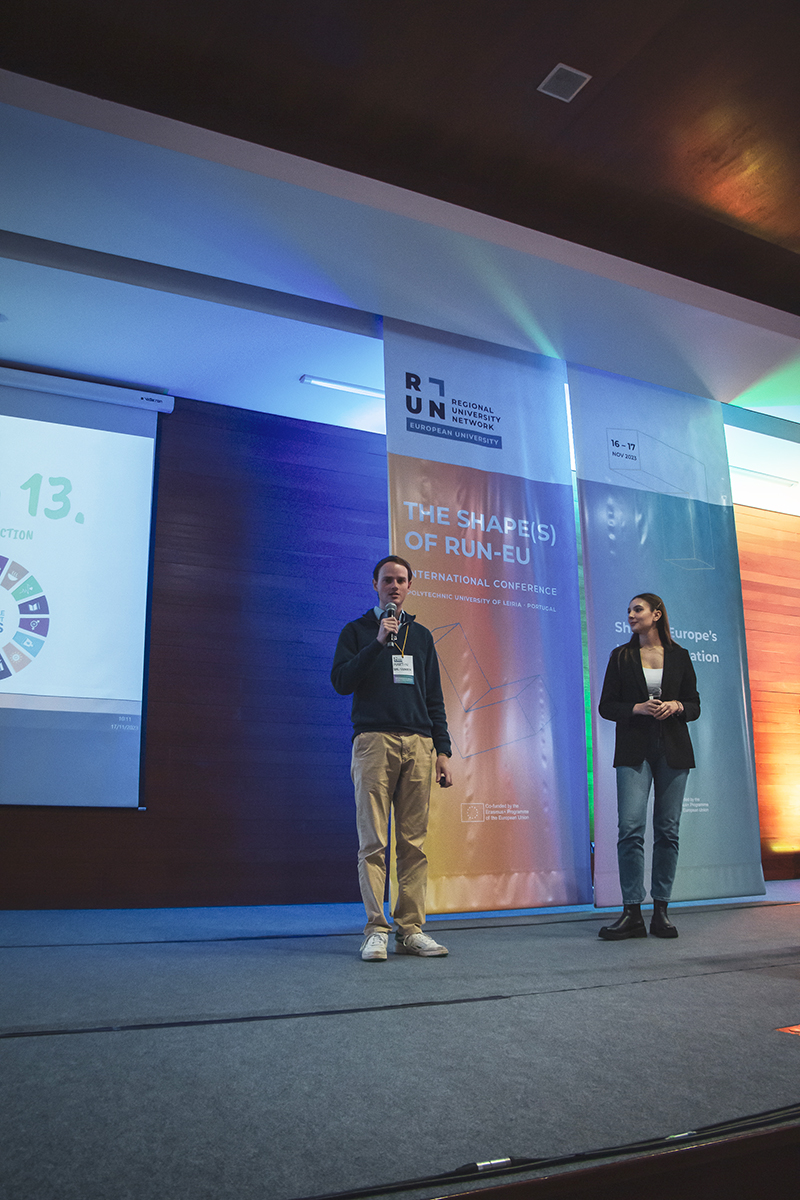
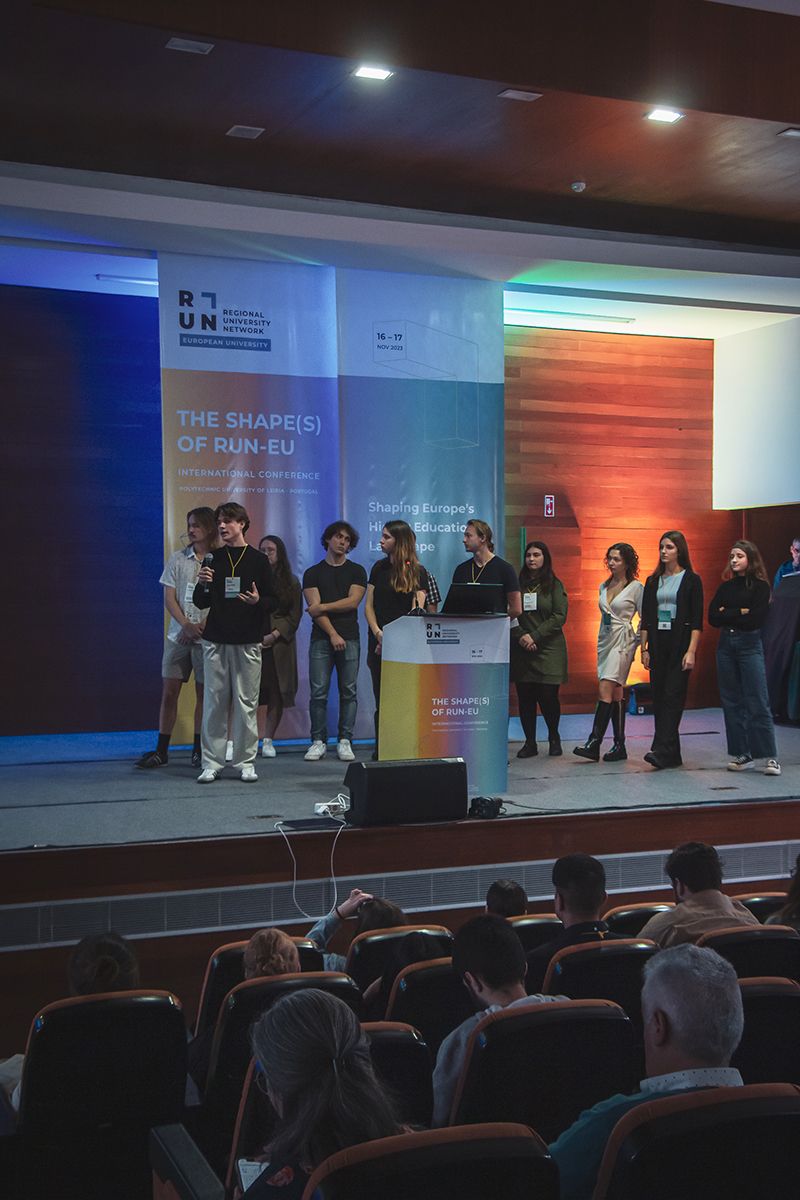
SHORT ADVANCED PROGRAMME CHALLENGES
Presentation by Students
On the morning of 17 November, The Shape(s) of RUN-EU International Conference hosted the final presentations of the Students Week.
Eight groups of students took to the stage to present their brilliant ideas and final projects under each of the four SAP Challenges based on ‘Aspects of Interregional Development’:
Results from RUN-EU
At the end of the morning the following speaker representatives presented the outstanding results from RUN-EU:
- WP1 Coordination and Management – Pedro Assunção
- WP2 European Innovation Hubs – Annukka Pakarinen
- WP3 Future and Advanced Skills Academies – Liisa Postareff
- WP4 European Mobility Innovation – Peter de Boer
- WP5 RUN-EU Discovery Programme – Patrick Murray
- WP6 Short-Advanced Programmes – Paula Tavares
- WP7 Collaborative European Degrees – Marijana Milosevic
- WP8 Dissemination and Sustainability – João dos Santos
Pedro Assunção, Vice-President of the Polytechnic University of Leiria and co-coordinator of the Alliance closed the conference by talking about how RUN-EU has managed to overcome what was planned, even though the first years have passed under a pandemic:
‘After these 3 years, we have done everything we had planned.
Something we are proud of is that we have EU students and we are working with the European Commission.
Even after the COVID-19 pandemic, the increase in the number of SAPs and other programmes explains that we have recovered: 183% increase between 2021/2022 and 2022/2023′.
